#i had to learn about how neurotypical people see autism though because it tends to be a very big misunderstanding
Text
I'm watching mob pyscho 100 and it actually makes sense now. I tried to watch it once when I was younger and couldn't understand anything that was going on but now I'm like "oooh we're autistic" lmao. So THAT'S why I didn't know what was going on
#lol i remember being like 'bro what kinda protagonist is this? hes a little naive and overpowered but other than that completely normal'#and now im like oh mob is just very autistic coded. which is my normal but yeah#i had to learn about how neurotypical people see autism though because it tends to be a very big misunderstanding#for example if you told me someone doesnt feel emotion id assume thats what you meant and wouldnt associate that with autism at all#but then seeing mob being told hes emotionless when hes actually very prone to being overwhelmed by his emotions#i felt like that was very relatable#and then they tell him to show more emotion and express himself more but when he does#they all go 'ew not like that wtf' which is just. yeah relatable#anyway physcology special interest go brr
20 notes
·
View notes
Text
SBG GANG MENTAL ANALYSIS
first of all, I should explain what I am going to do. starting with Ashlyn, I'll analyze and/or theorize the group. because there is a lot of depth to all their characters and I've really been wanting to do this for some time. it will be a total of 5 posts instead of 6, because I will be analyzing Tyler and Taylor together due to obvious reasons. I will also cut them at the beginning because they might be long and also there will be triggers.
Part 1: Ashlyn Banner

I'm starting with Ashlyn right here as the protagonist and the leader of the series. Ashlyn's probably won't be very long since this is not a character analysis and instead, a mental characteristic analysis. even though her character is written so well that doesn't mean she has to be mentally sick, since she seems to be... well the most stable one -until the recent chapters-
what I'll be starting off with, will be autism. even though it's not confirmed fully in canon, Red herself said that she wrote Ashlyn with autism in mind so in this analysis I'll mostly go through with the symptoms she shows and how it explains her character.
her most obvious and constantly repeated symptom is her sensory issues. she is able to hear phantom noises and other things no one can hear due to her hypersensitive hearing.
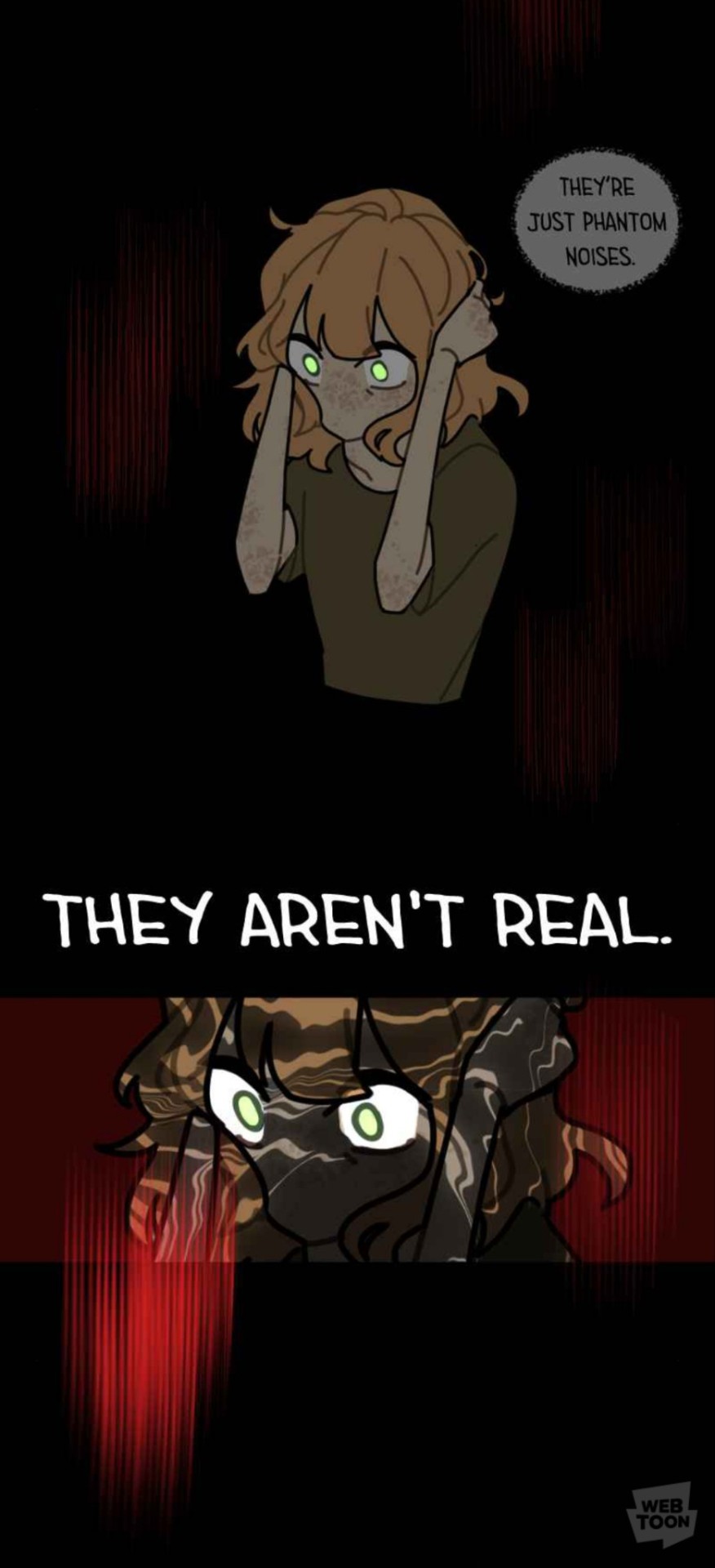
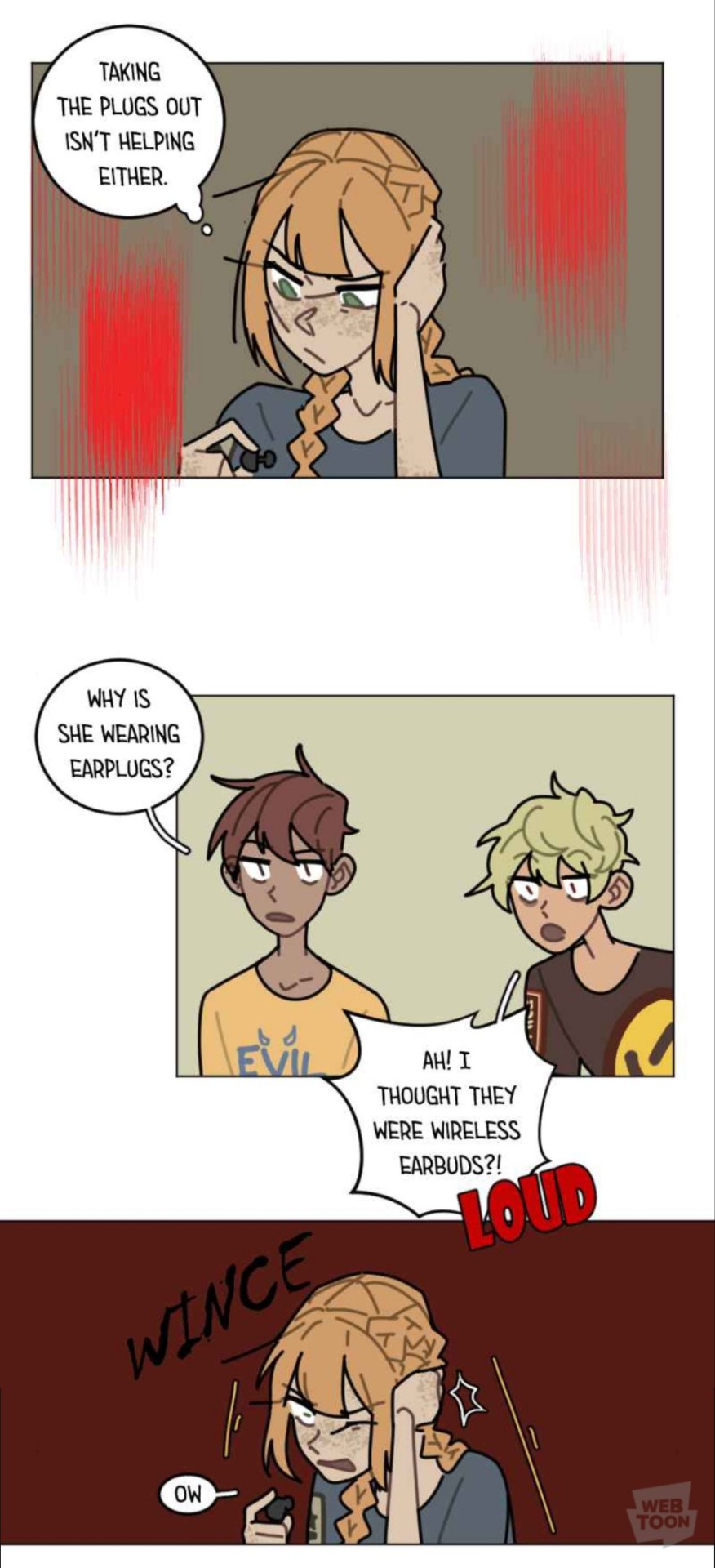
from the beginning of the series, she has been repeatedly struggling with loud noises even though she wore earplugs or noise-cancellation headphones. Ashlyn herself said that she didn't want to make friends growing up, one of the reasons being her sensitive hearing allowing her to hear everything. you'd also probably be wary of things like it if you had her hearing; any gossip, talking behind backs, rumours etc. would not be pleasant to hear and you'd be aware of everyone's true side.
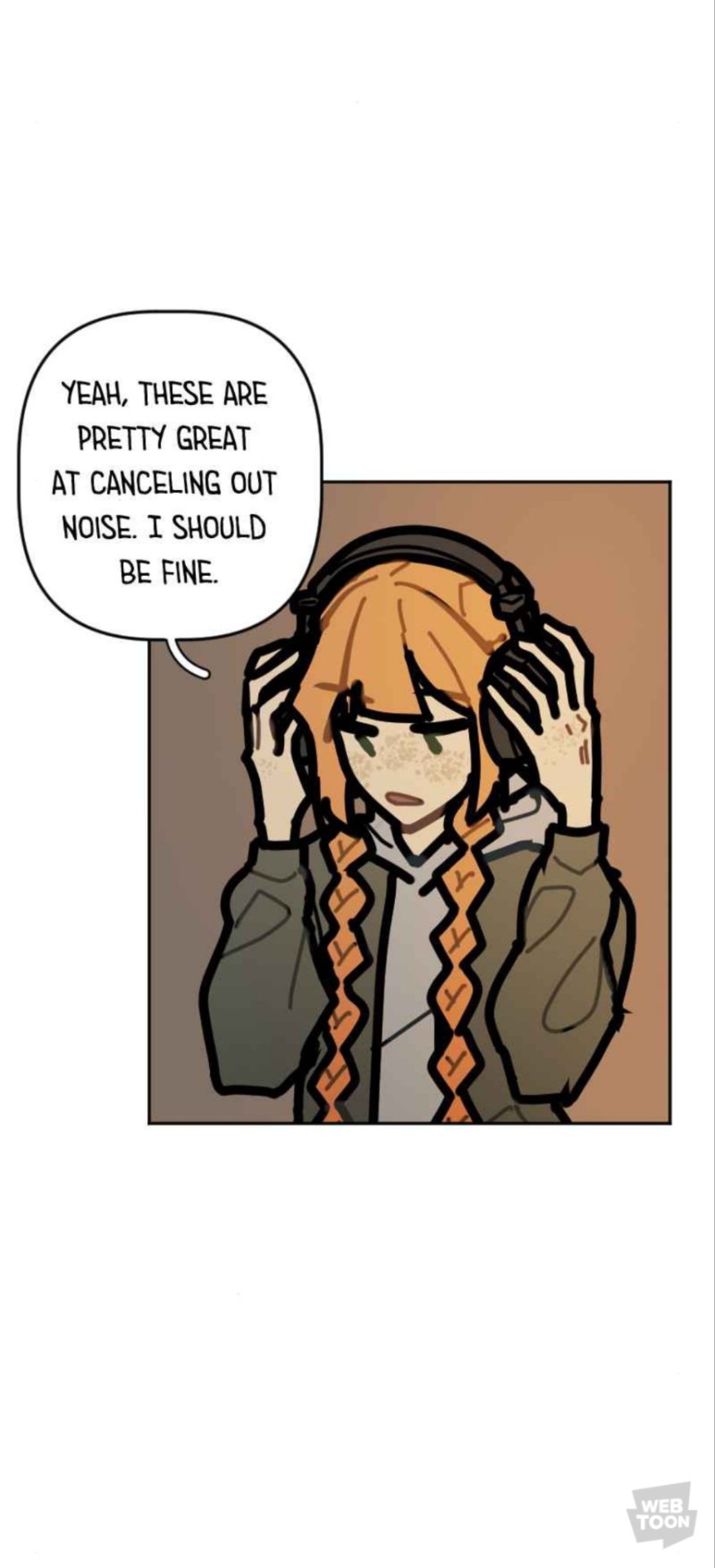
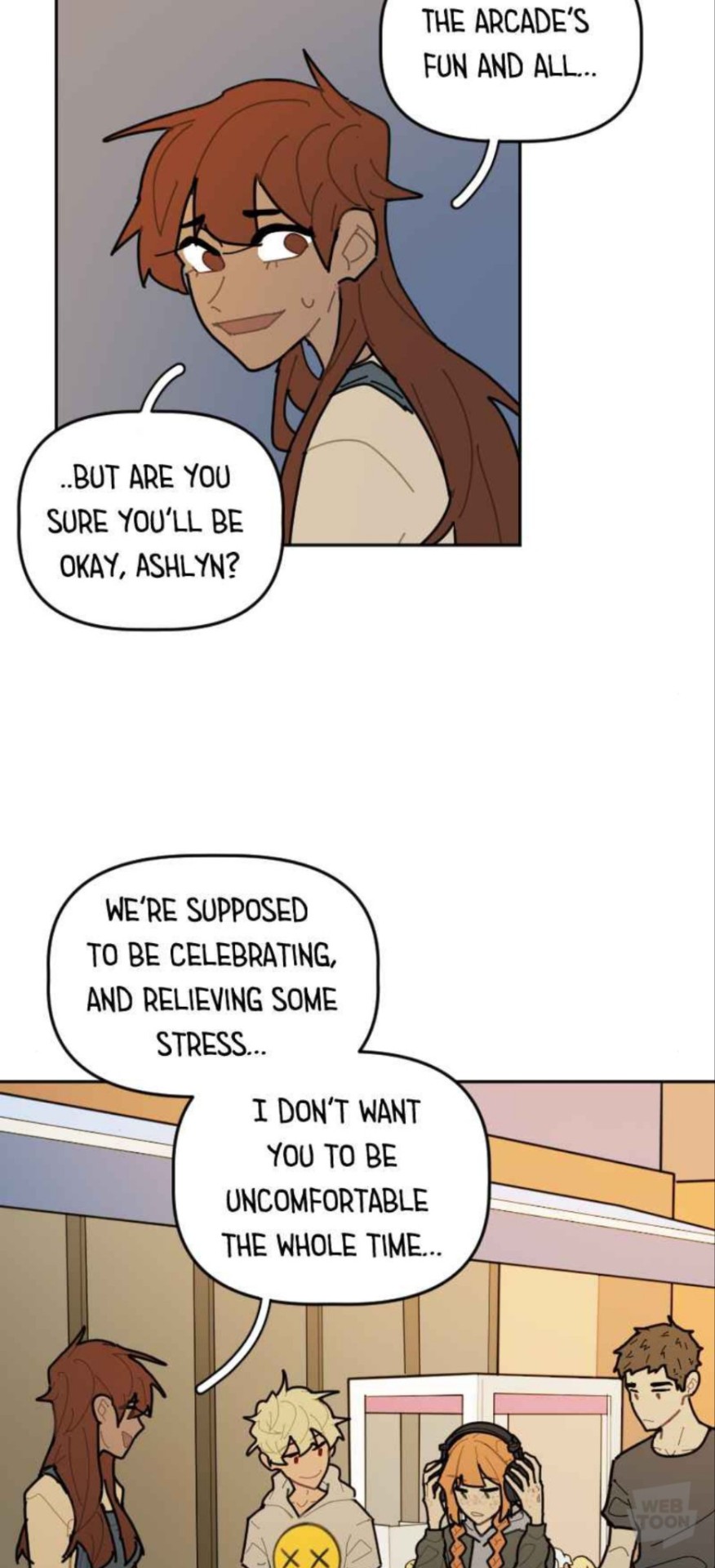
the group understands her problems with her hearing being too strong, and looks after her whenever there's anything loud. which was first seen at the arcade if I'm correct, Taylor asked her if she'd be alright and Aiden got punched in the face while he was worried about her.
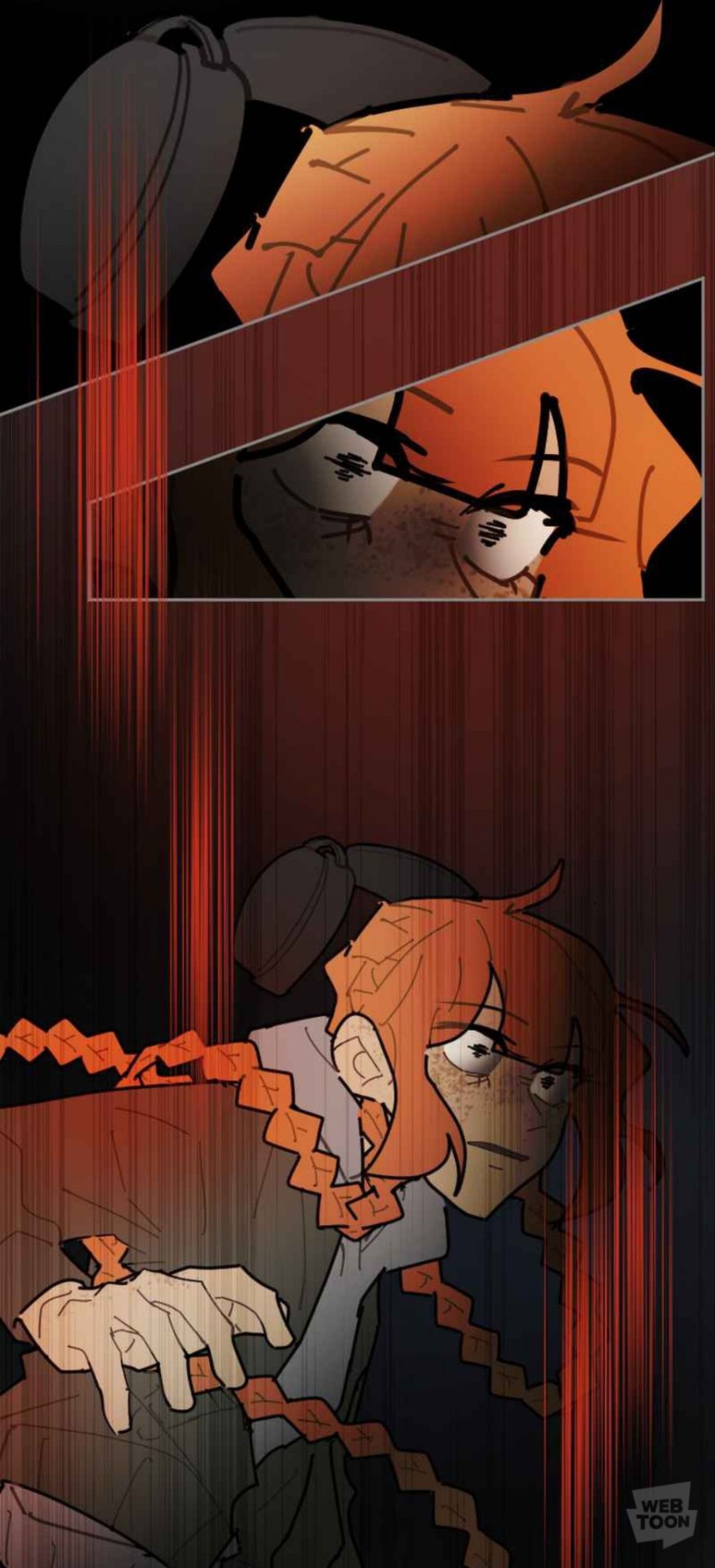
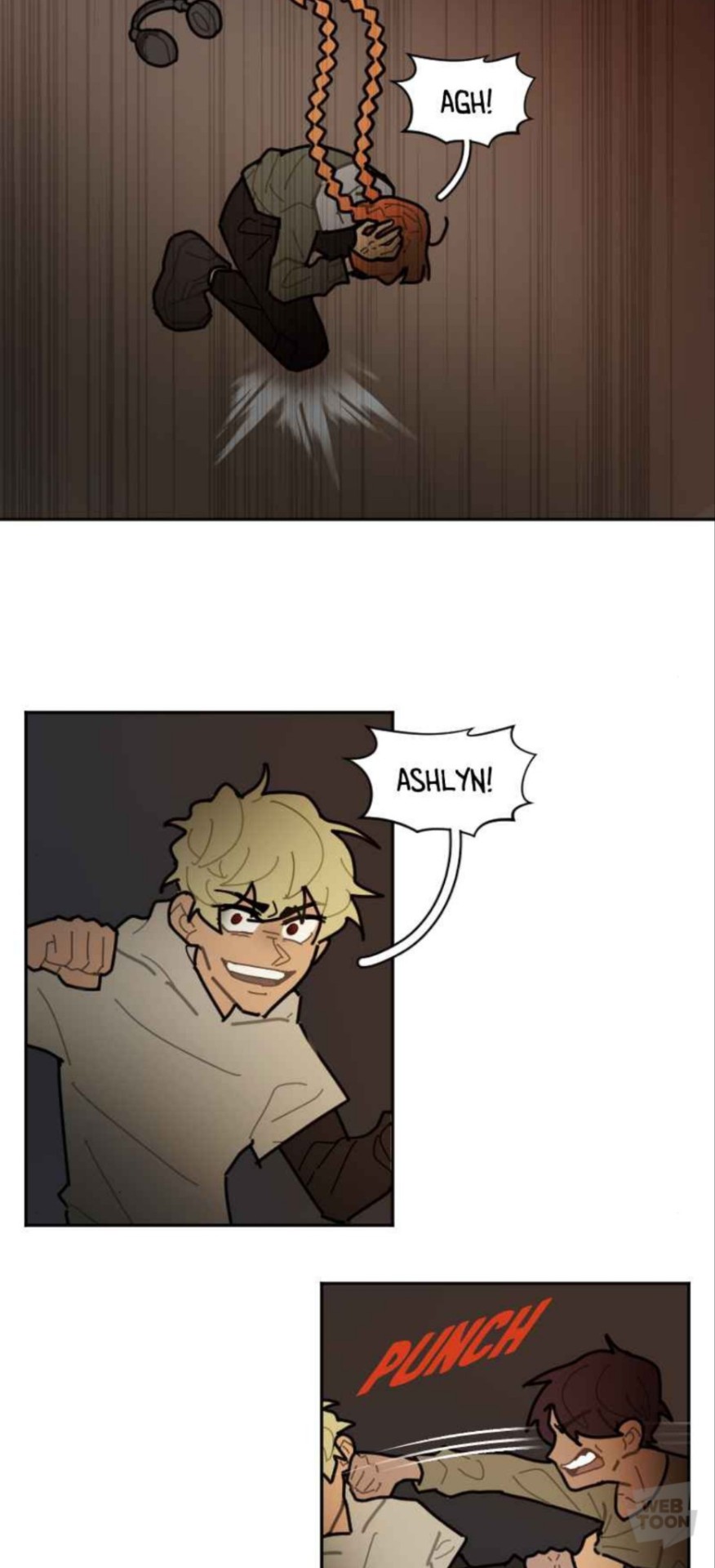
or the time Taylor and Logan were shooting at the centipede phantom, due to the bullets making extremely loud sounds for her. or in the facility, when Logan told her to cover her ears to take down a phantom.
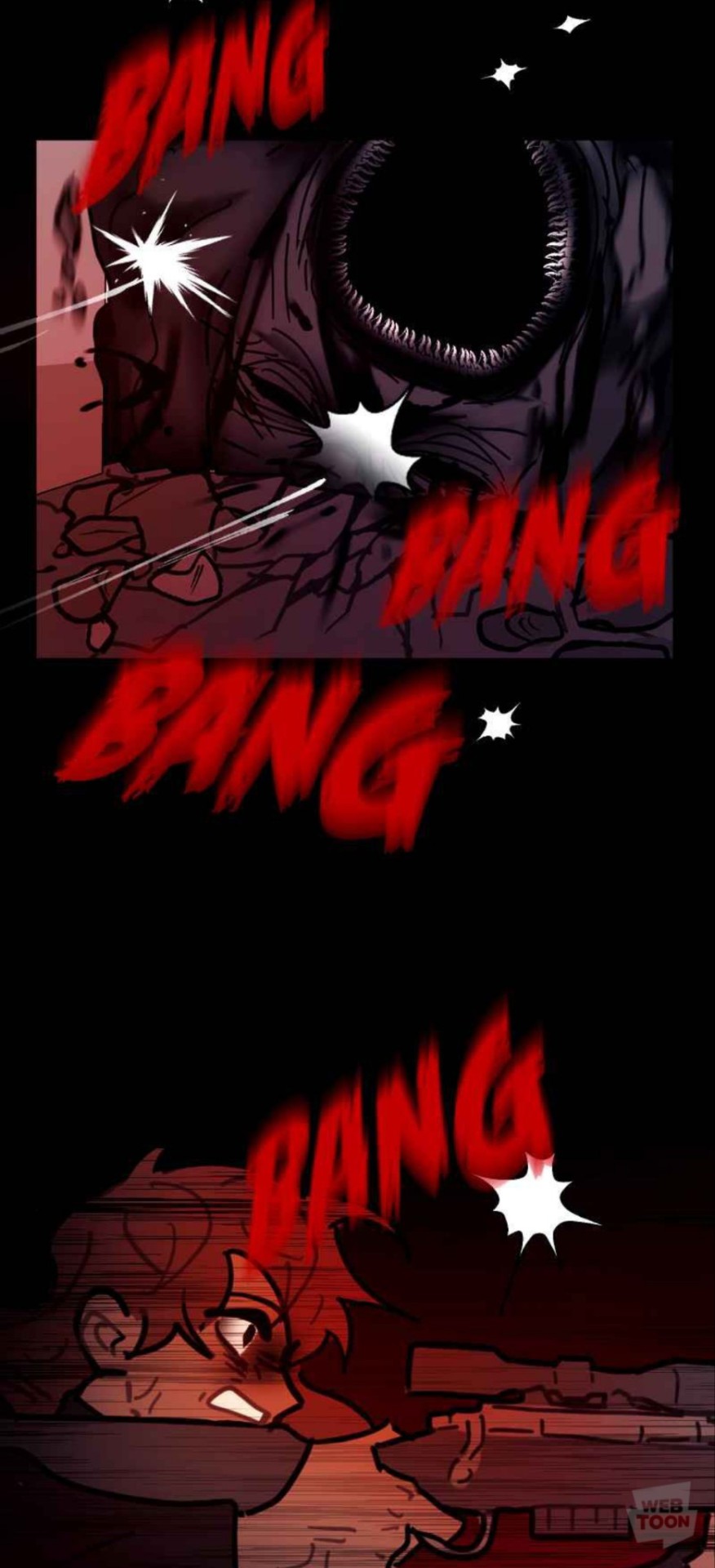
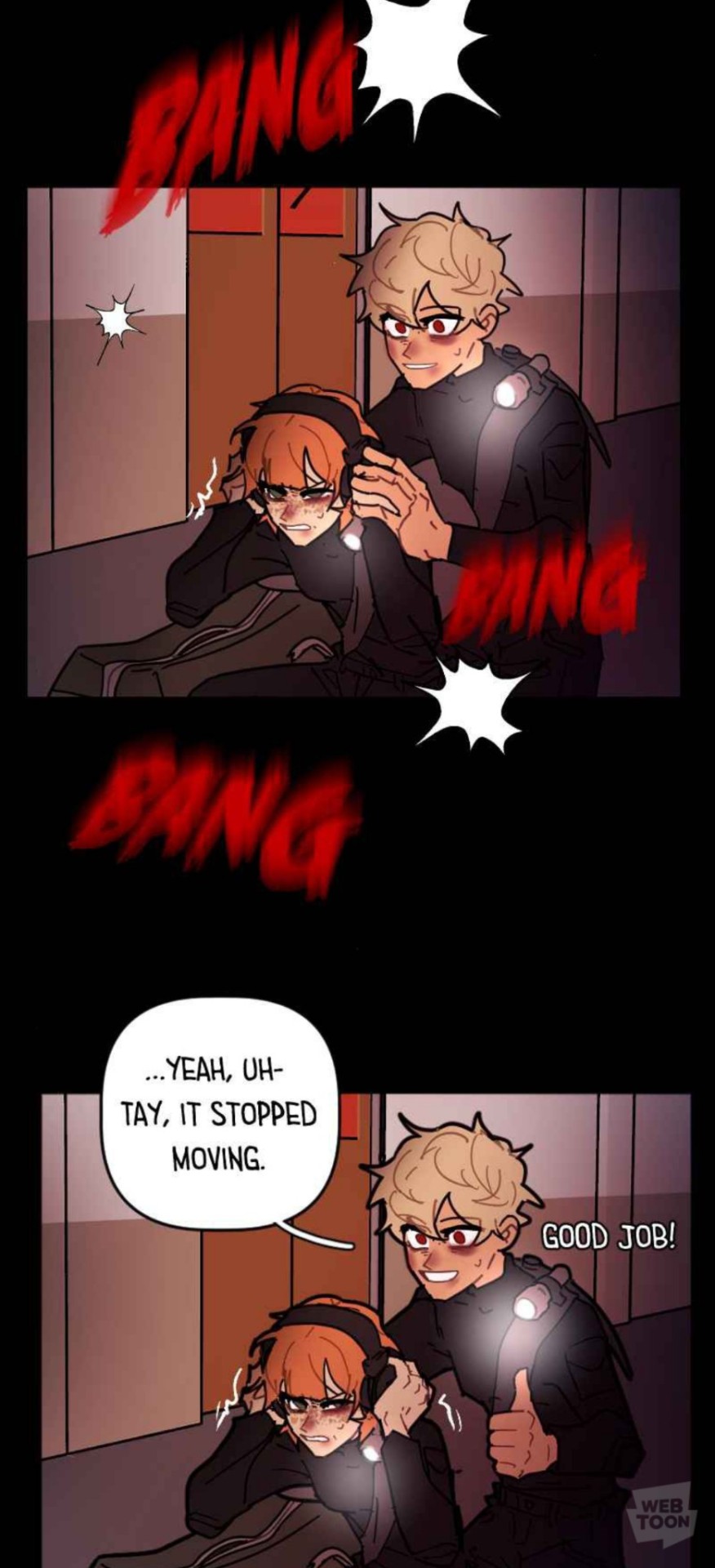
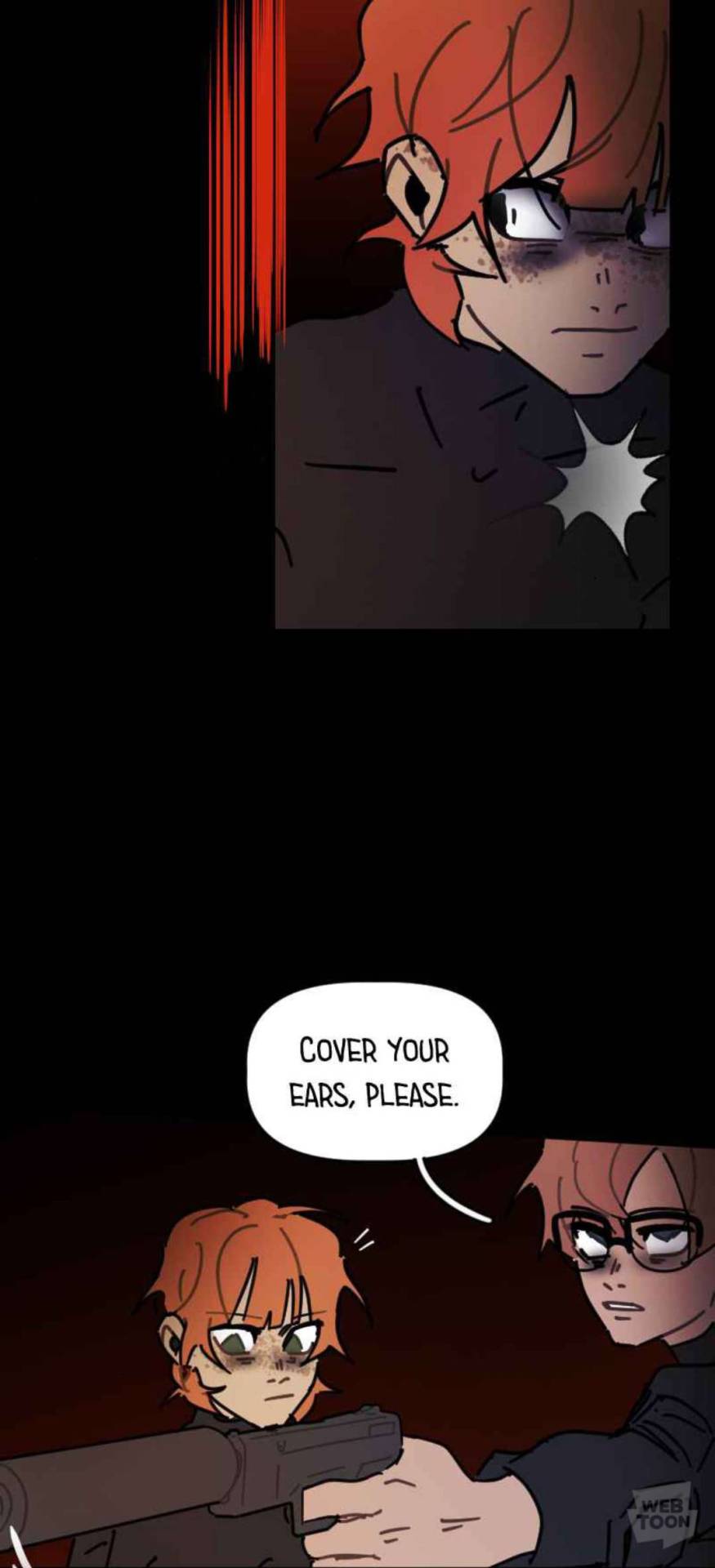
from the moment she was born, she had always been sensitive to any loud sounds. reminding here that autism is a neurodivergency, which means someone's brain is diverse than most other who we call neurotypicals. autism, ADHD, bipolar etc. are neurodivergencies that cannot be obtained later in life, and has always been at the person's brain.
I see myself in her frequently, I also wear earplugs constantly and my friends are aware of the sensory issues I have. her reactions to said sensory issues are written really realistic and correctly.
next, boundaries and distancing.
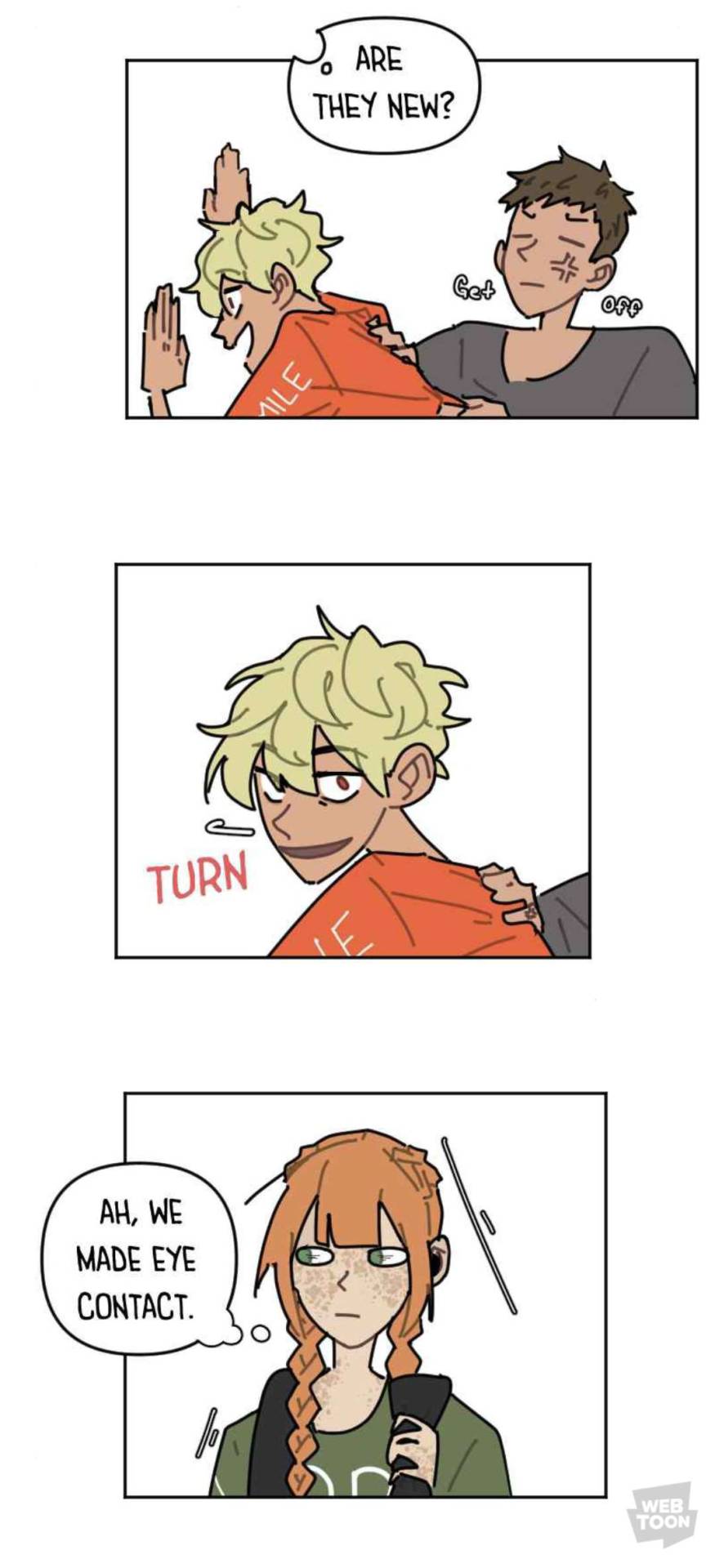
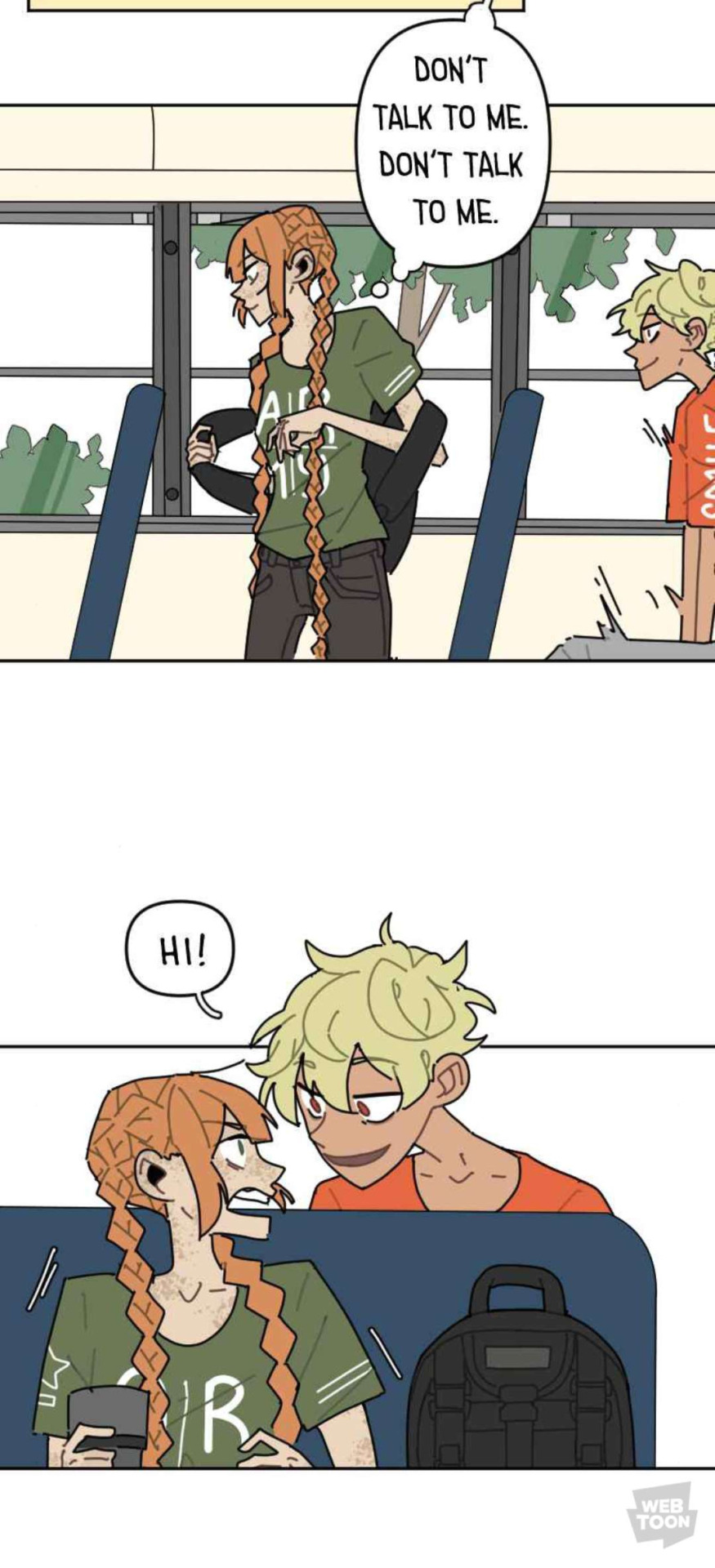
once again, since the beginning, Ashlyn has been distancing herself from everyone around her. this part will mostly include Aiden due to him not understanding boundaries and having passed Ashlyn's lots of times.
autistic people tend to avoid eye contact, physical touch -if the person is not very close to them- and also usually not very expressive. for the love of god, the first time we see her geniunely smile is halfway through the series, when they get the car keys. the group's reaction to her smile is hilarious, even.
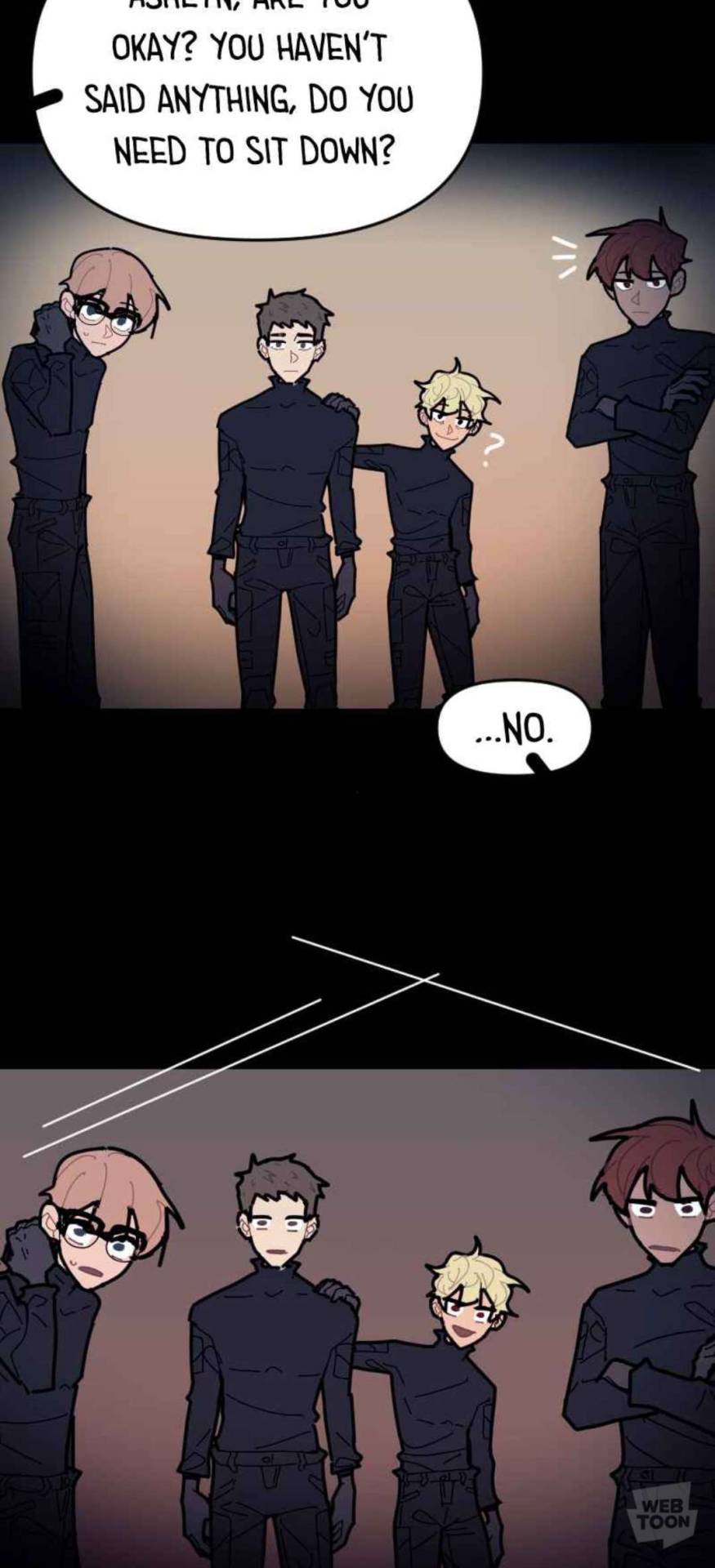
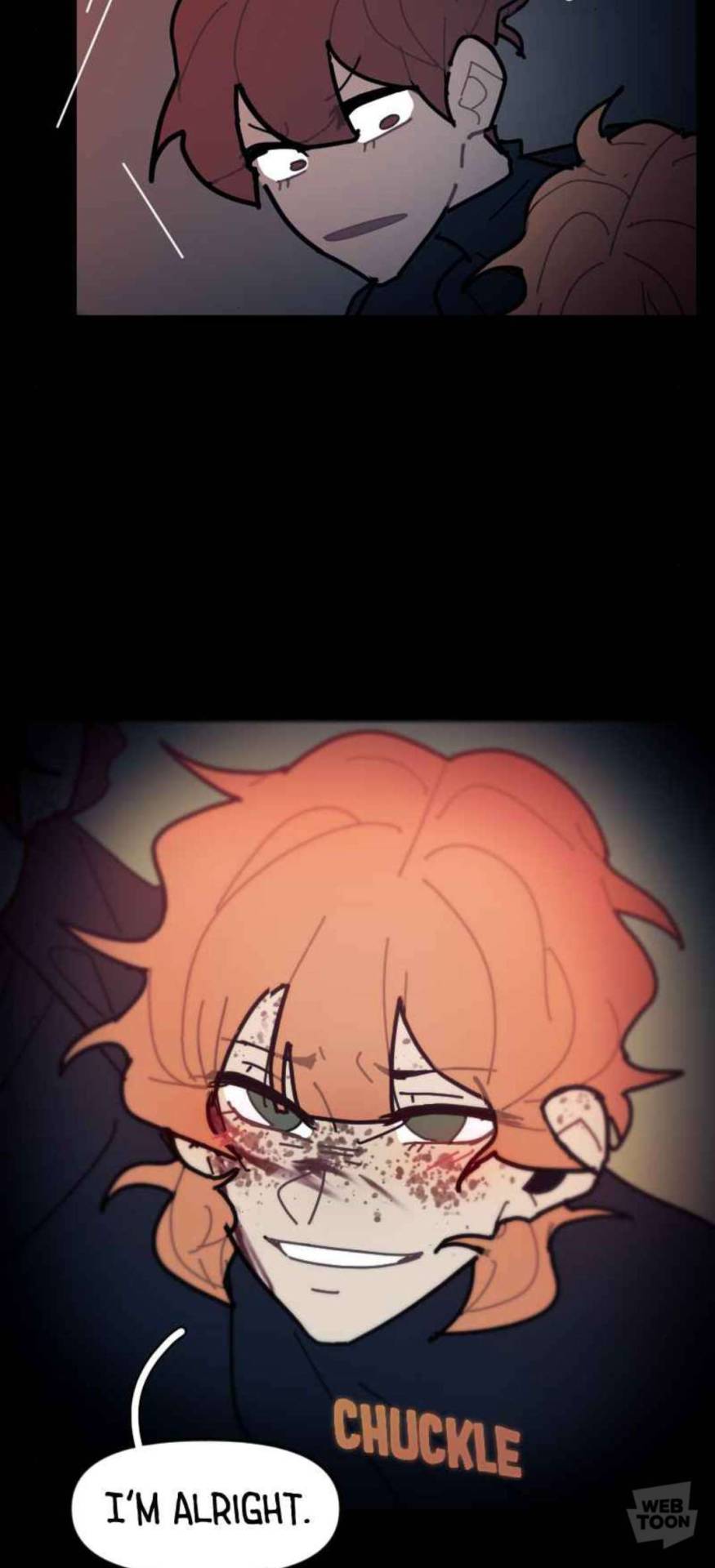
after the events of that night, Aiden is trying to understand her boundaries. he's an affectionate/caring person inside, and wants to hug her but keeps it low by just holding her head.
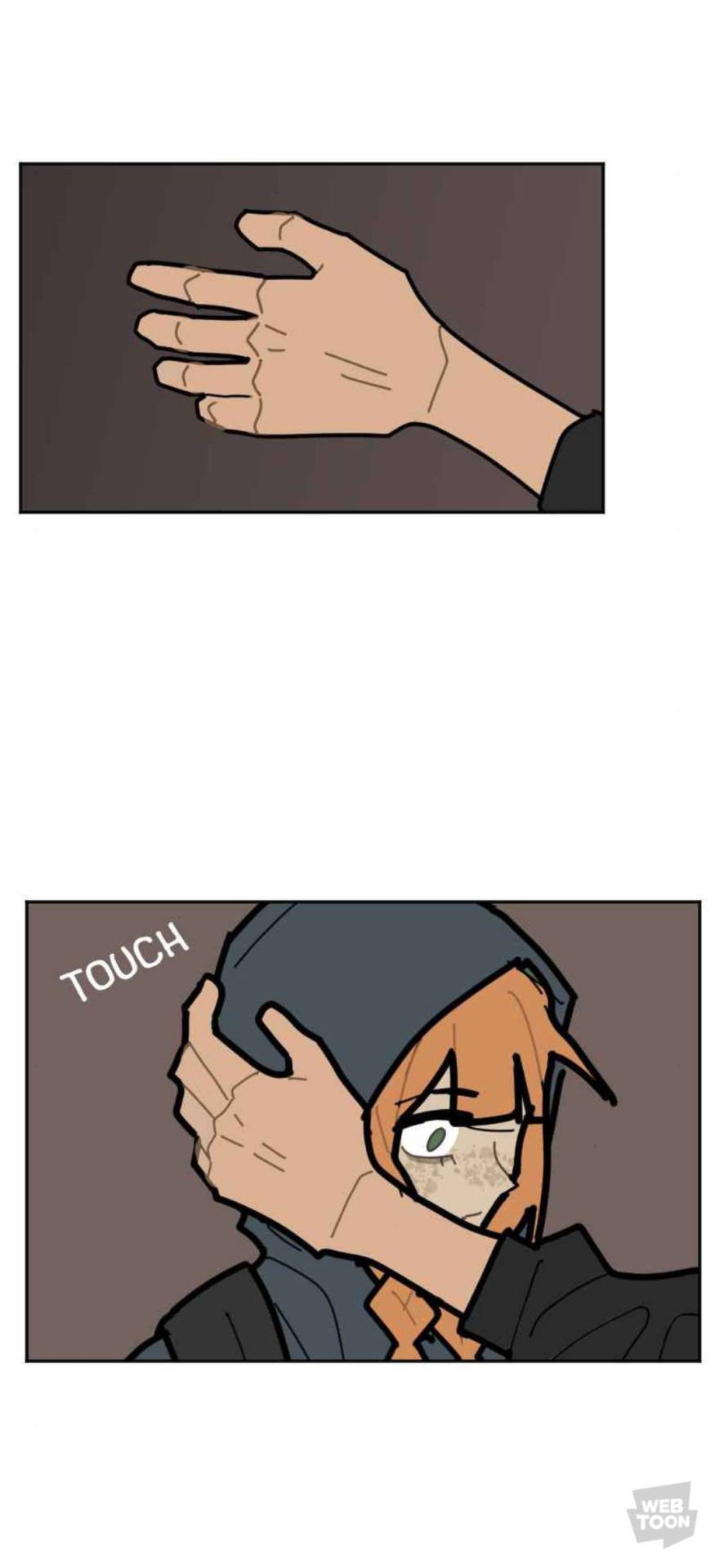
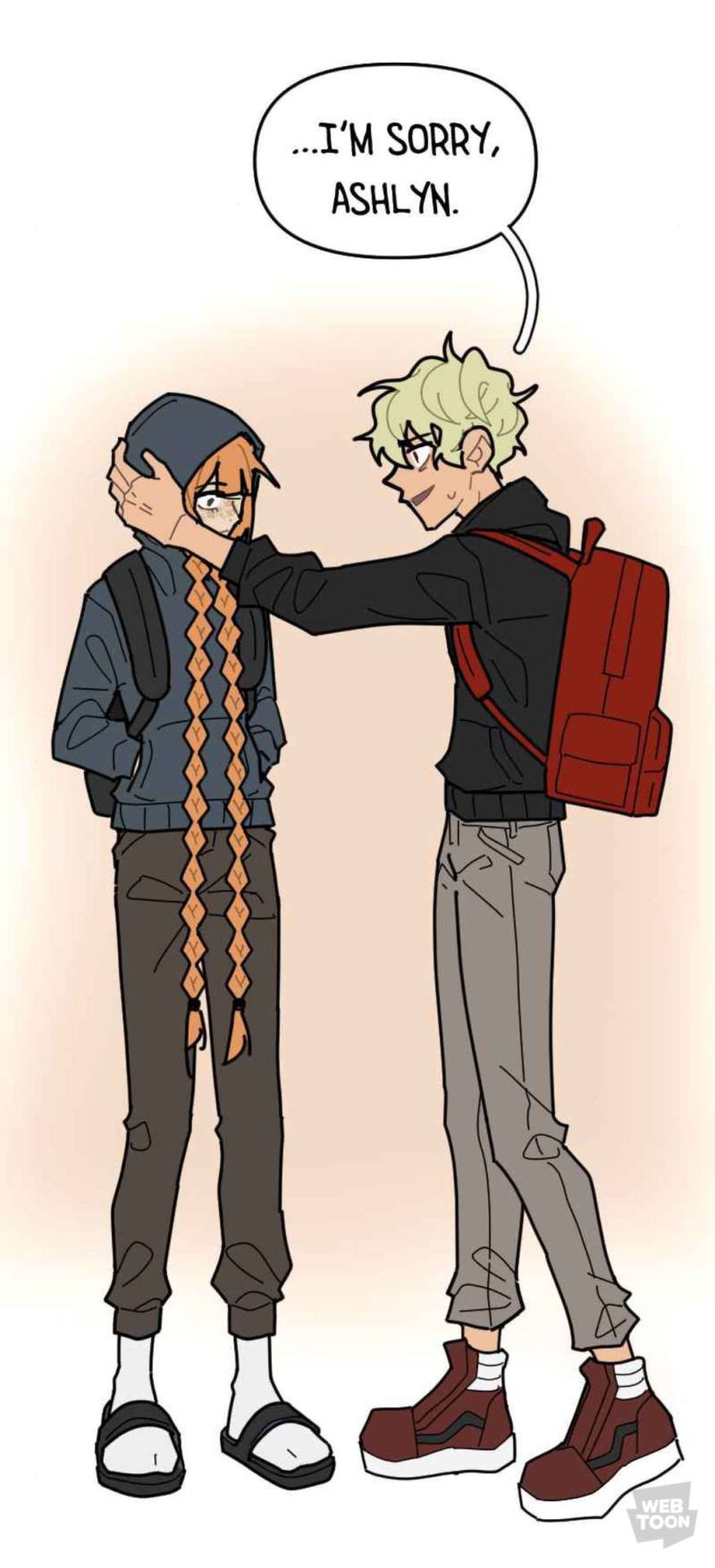
here we learn he did, indeed, hug her when he kept her from falling and Ashlyn even allowed it when she realized how scared he was for her.
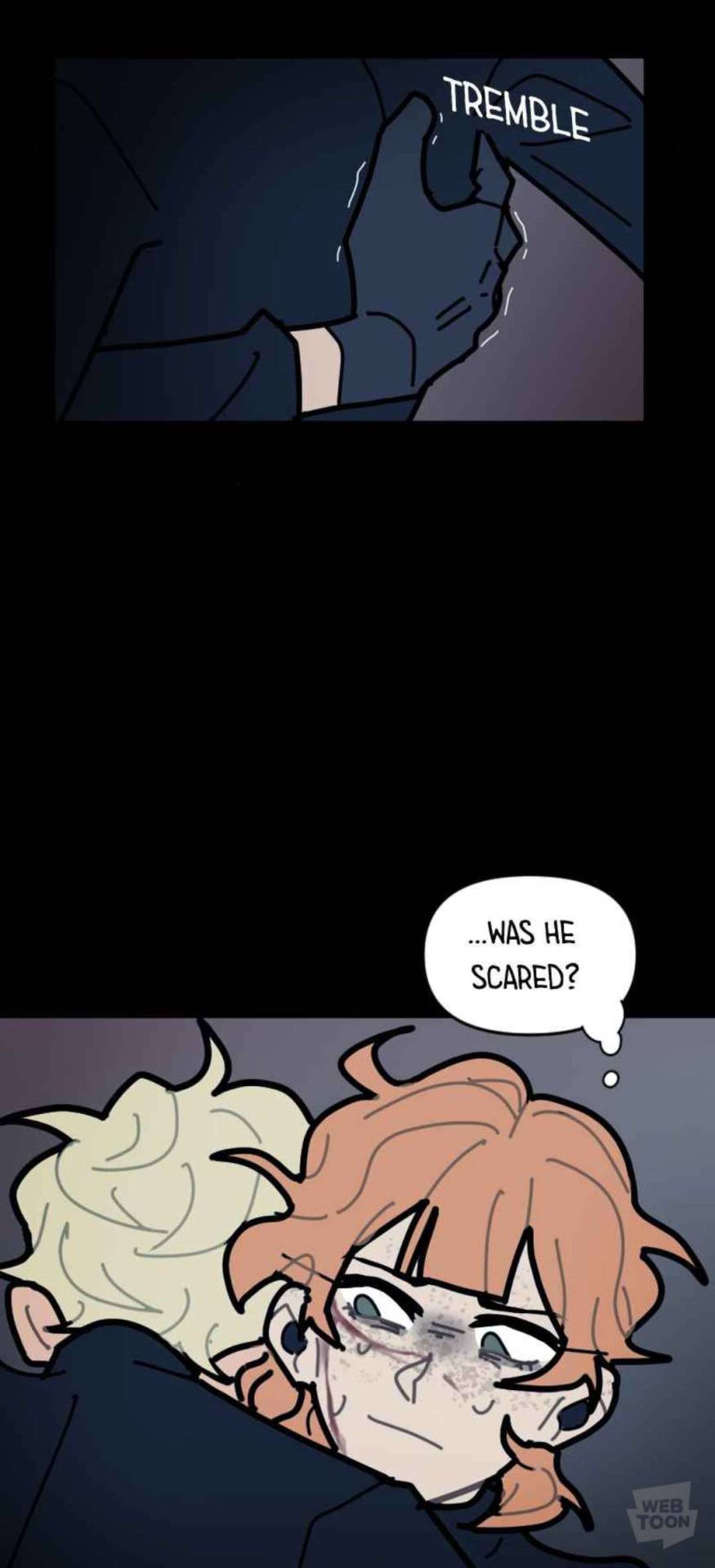
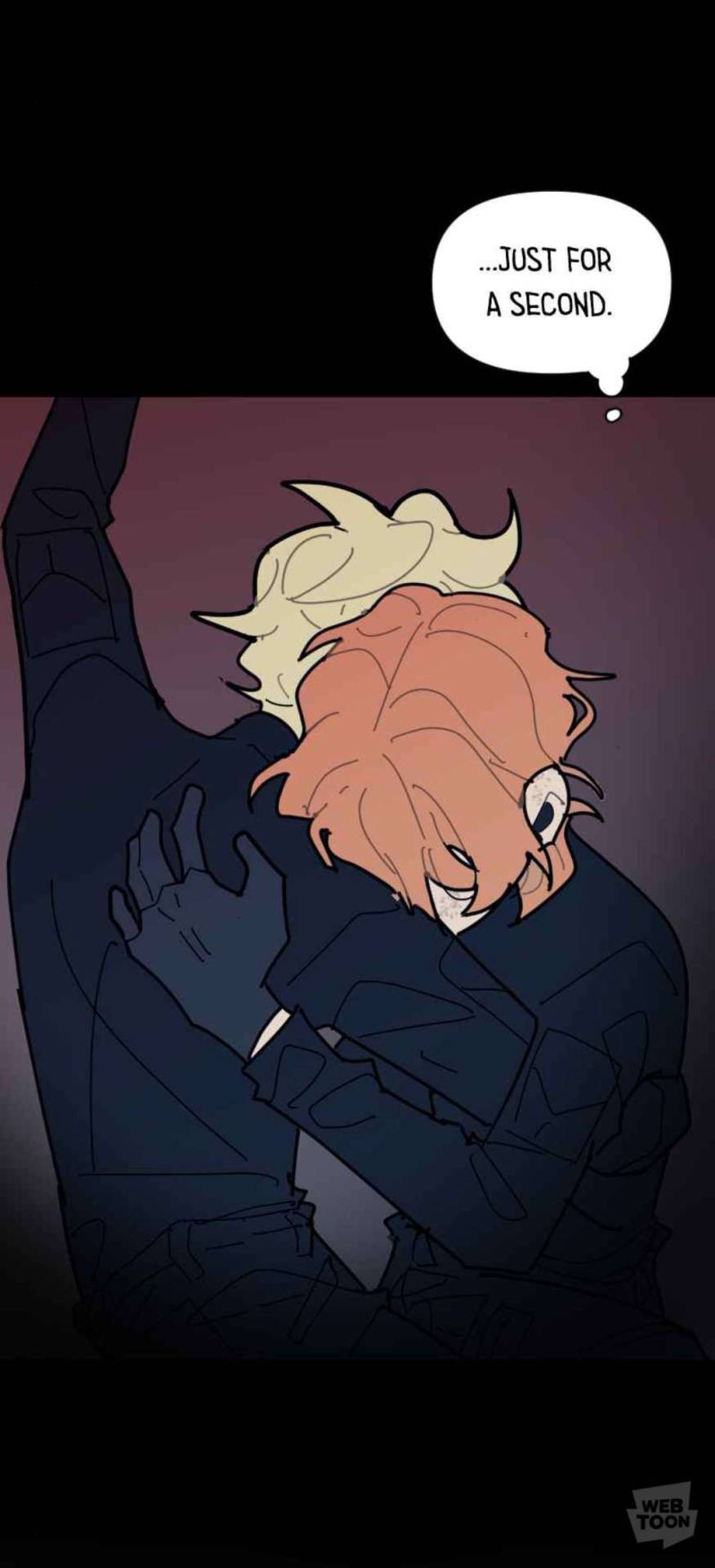
despite keeping her boundaries always high, she let it happen this time, learning how to open up to people. before this night she was always on guard
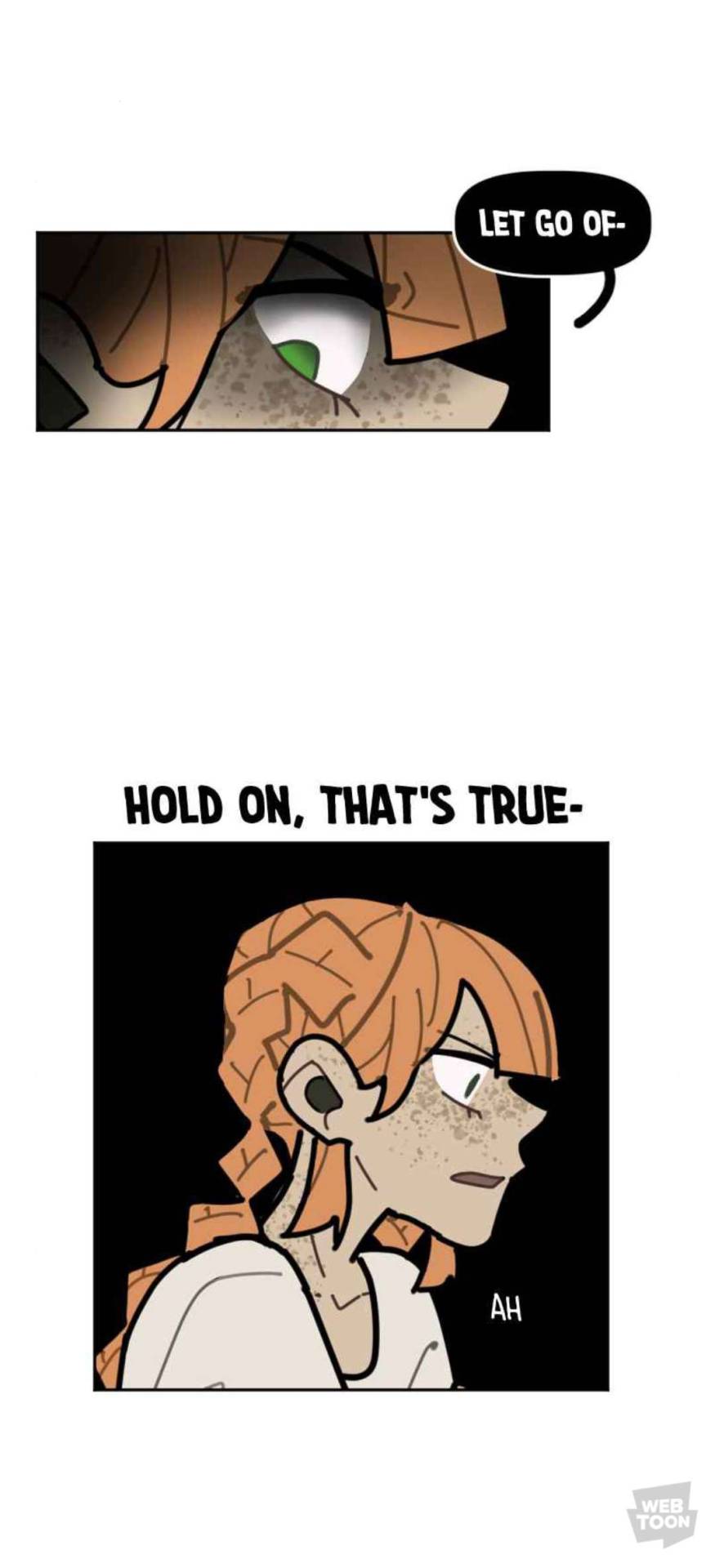
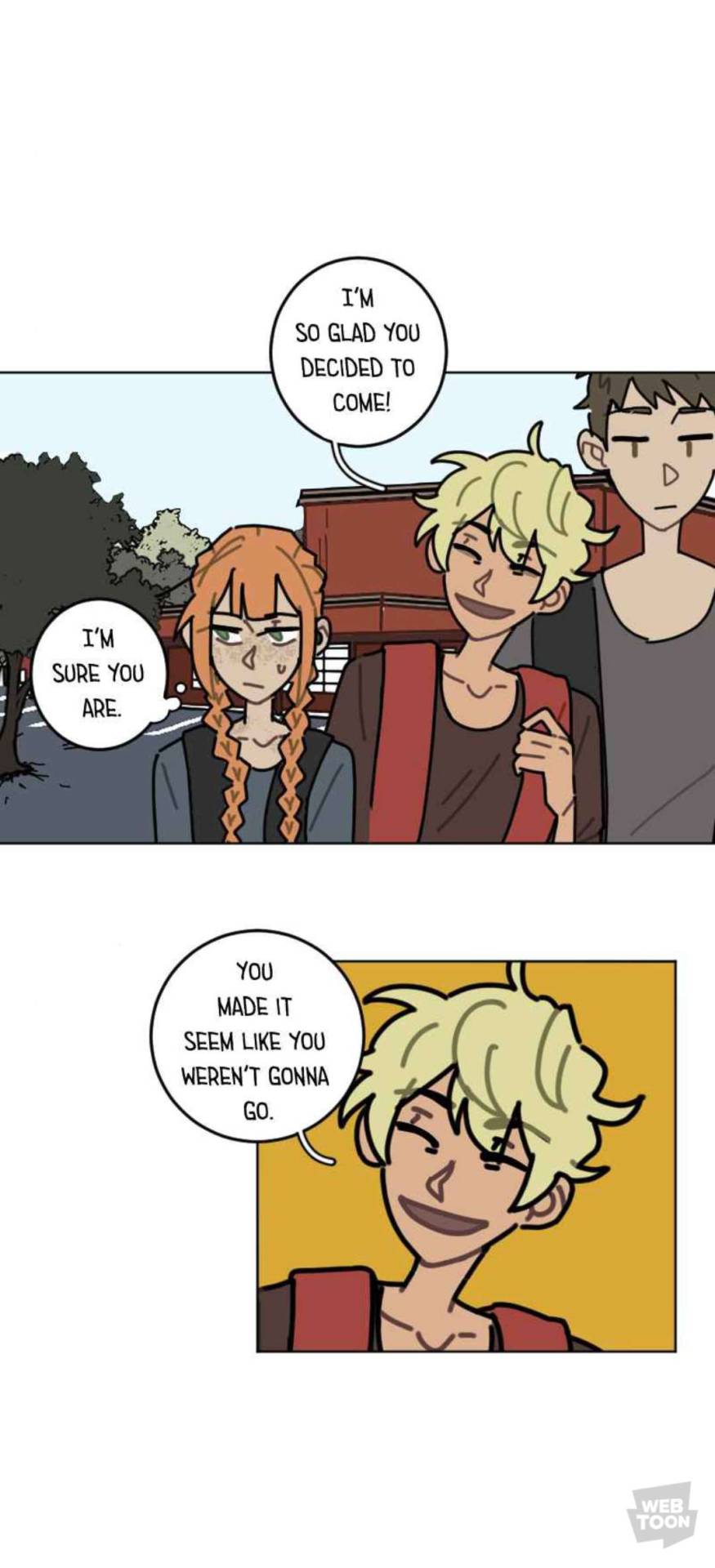
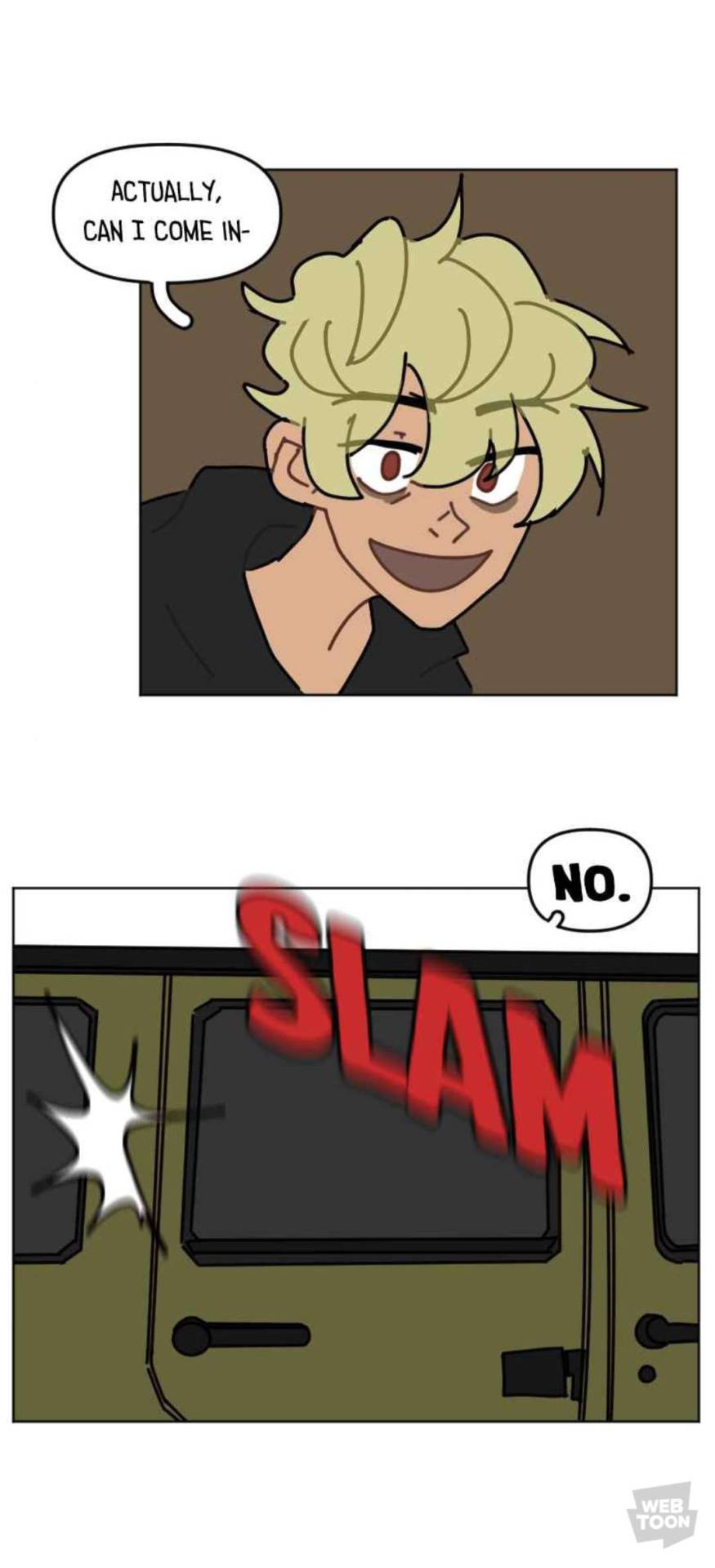
by time she starts to see them as her actual friends, like the found family they are. autistic people are similar to cats actually, like those stray cats that will claw you instantly if you look at their eyes for long or make sudden moves to pet them. the cat sniffs your hand first, you feed it for some time, then a slight touch. the cat gets used to you after your own efforts to get close to it. Ashlyn is a similar case, she had to almost die to get used to them and accept them.
next, special interests. this part is a bit short but I feel as if it still counts to be honest.
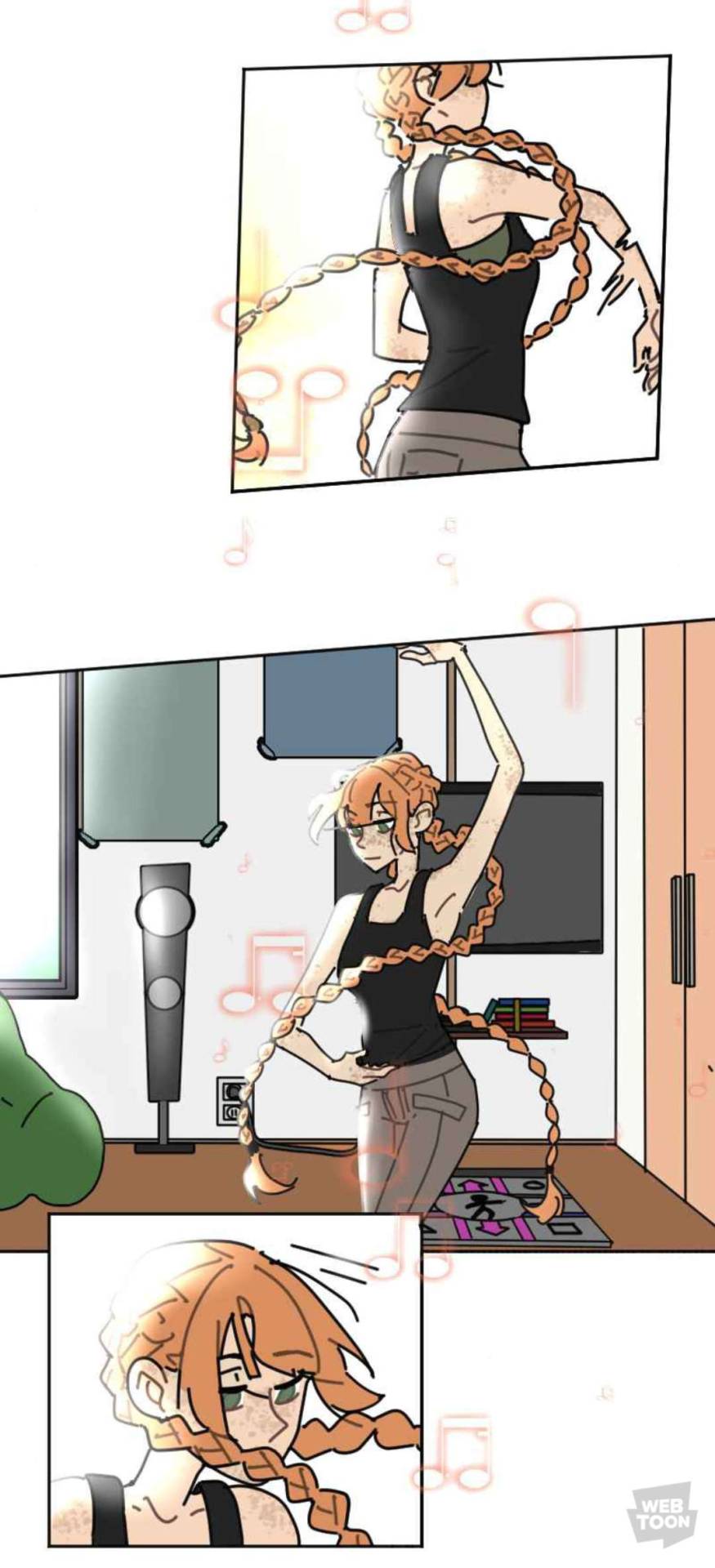
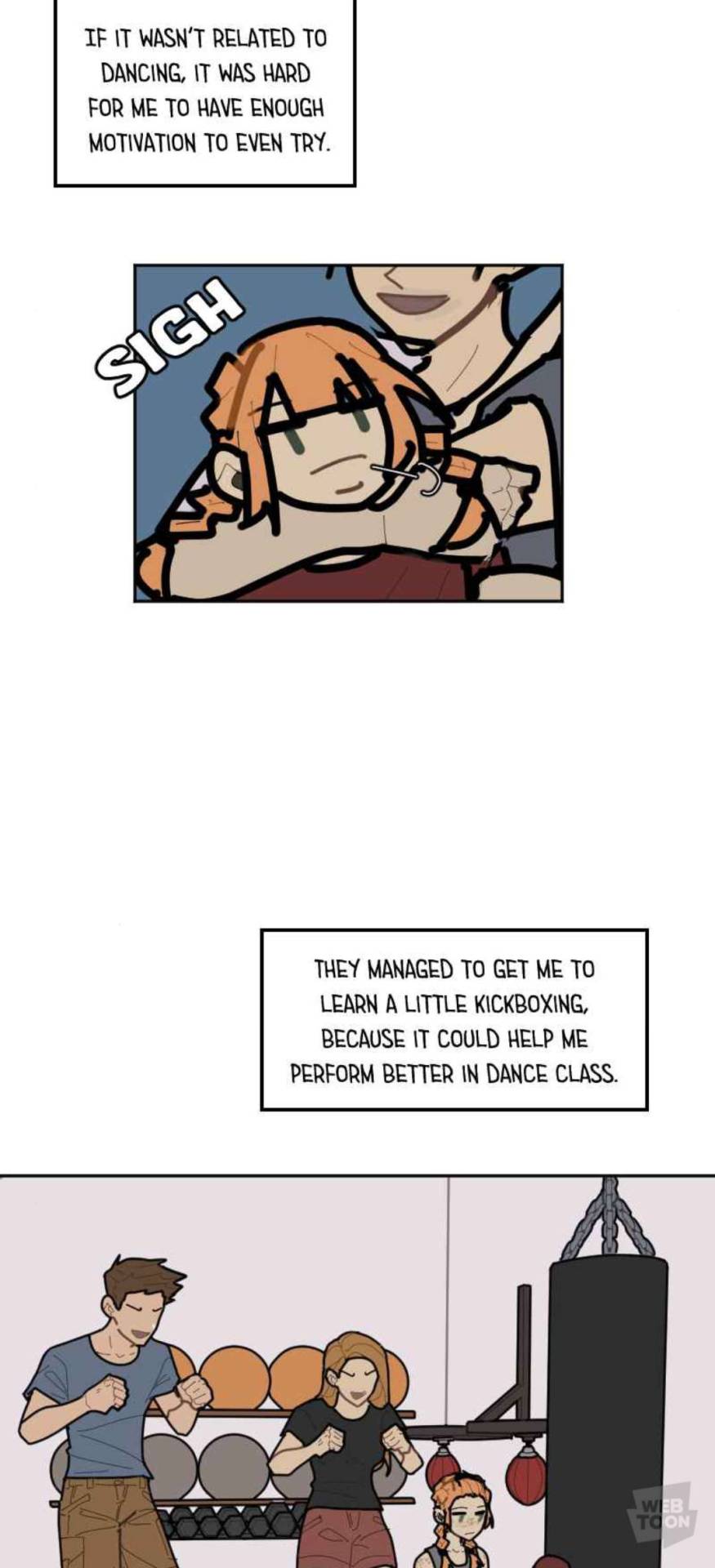
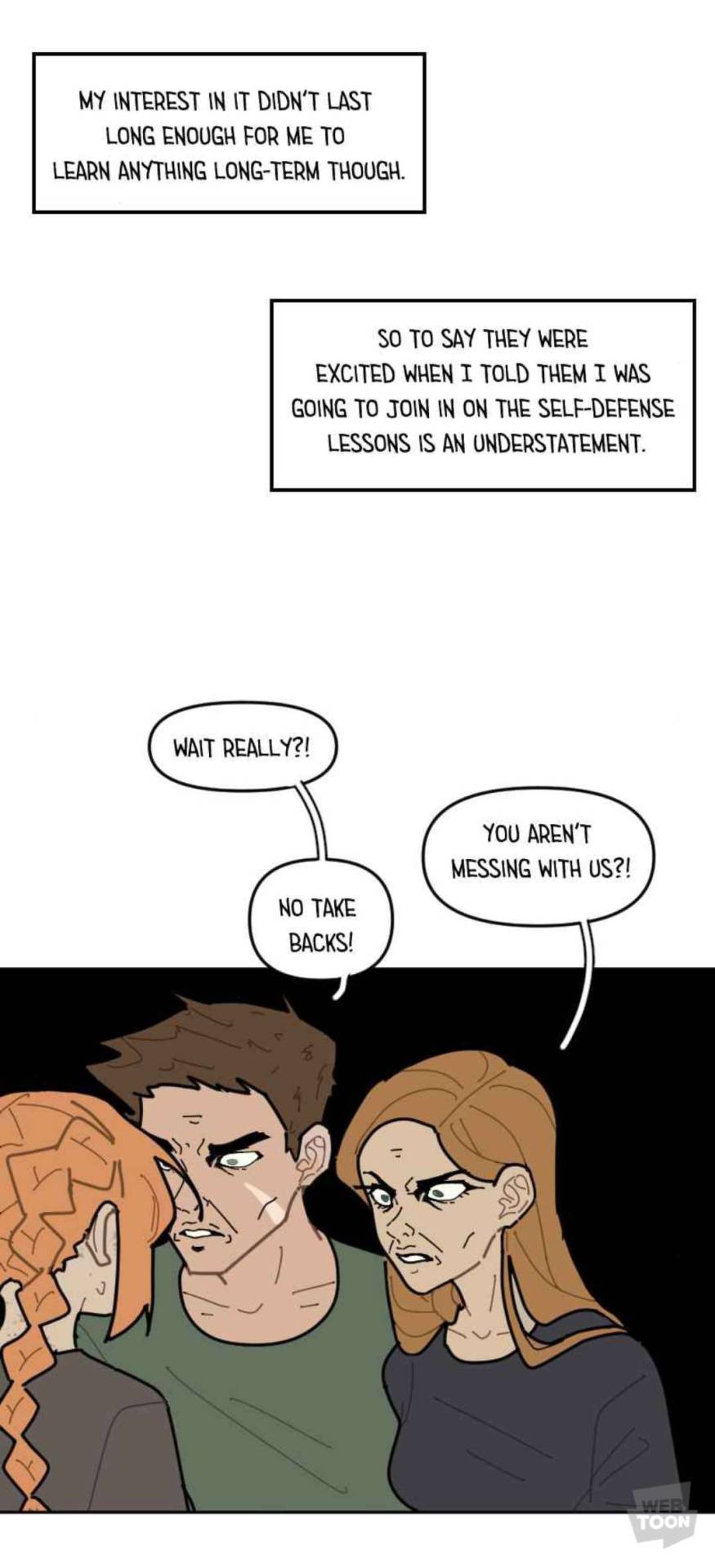
ever since her childhood, she's been very interested in dancing. losing track of time as she does, not being interested in any other things if it wasn't related to ballet, making it a very important part of herself. her love for dance/ballet made her not take any interest in anything else like her self-defense classes her parents tried to give, and they were really surprised once she asked them to do it this time.
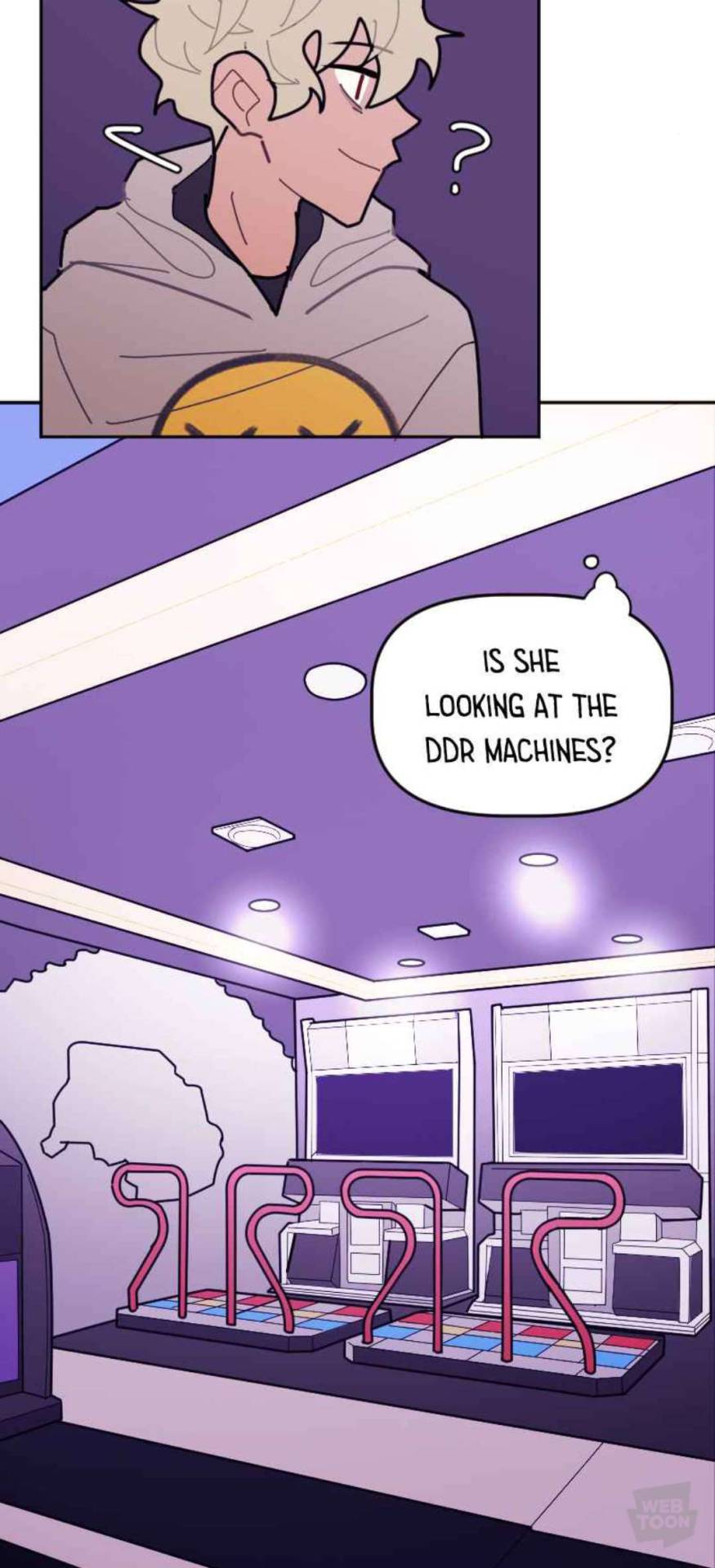
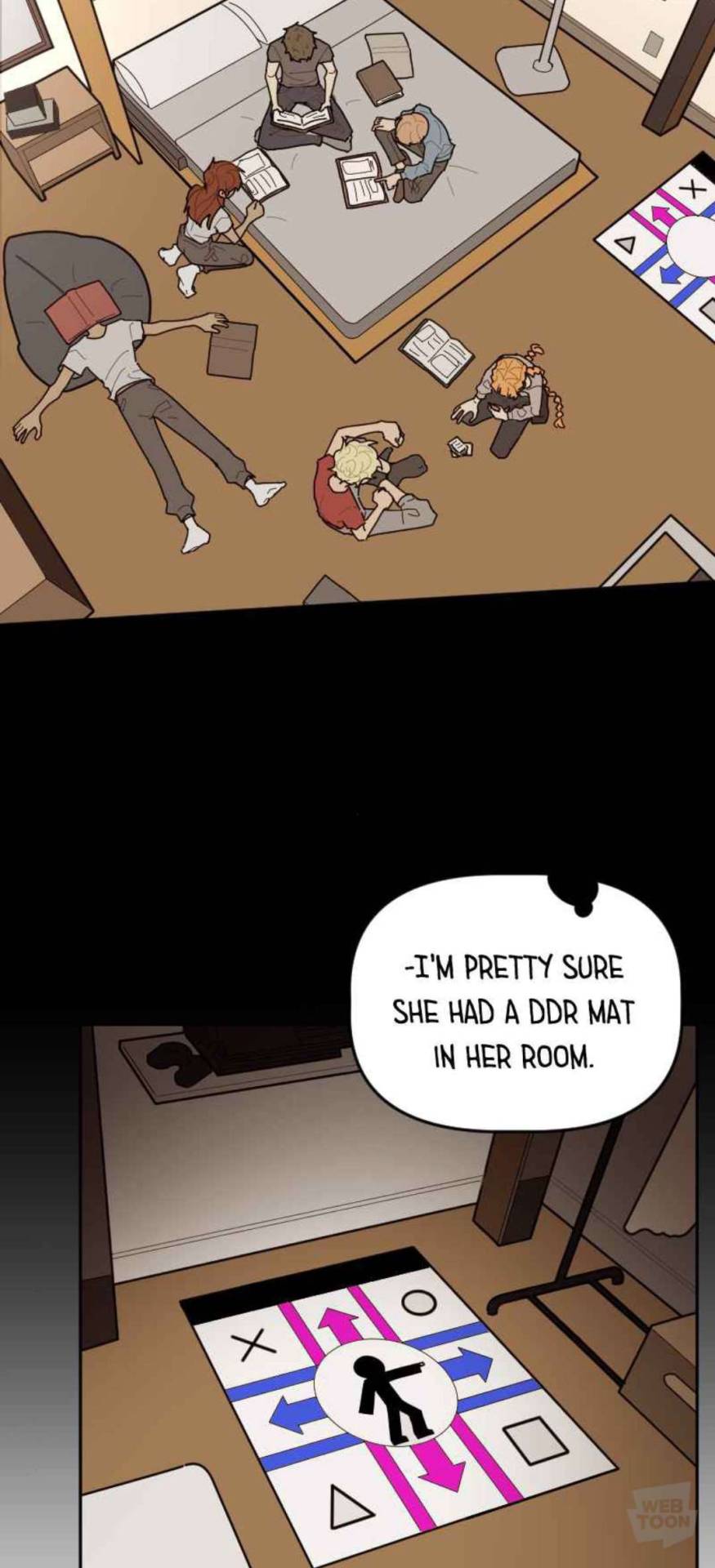
like cmon she has a literal dance mat on her room
which basically wraps the main symptoms! I can't really think of any detail symptoms for now because it's midnight here but I'm thinking of updating them each time I get more ideas.
for the next part, mental disorders.
personally, I must say that I don't think she suffers from any mental disorders or illnesses. she's not depressive, just closed off. you might ask anxiety but she herself had said she isn't shy or nervous, she herself just doesn't like to talk a lot which is fully valid. Ashlyn hasn't showed any problems in talking in front of audiences, she isn't paranoid -her hypersensitive hearing doesn't count since it's not paranoia; she knows what's in there because she hears- and seems to be mentally more stable than the rest of the group. I also don't think she has anger issues the way Ben and Tyler do, it's just that everything got on her nerves quickly before she got used to the team.
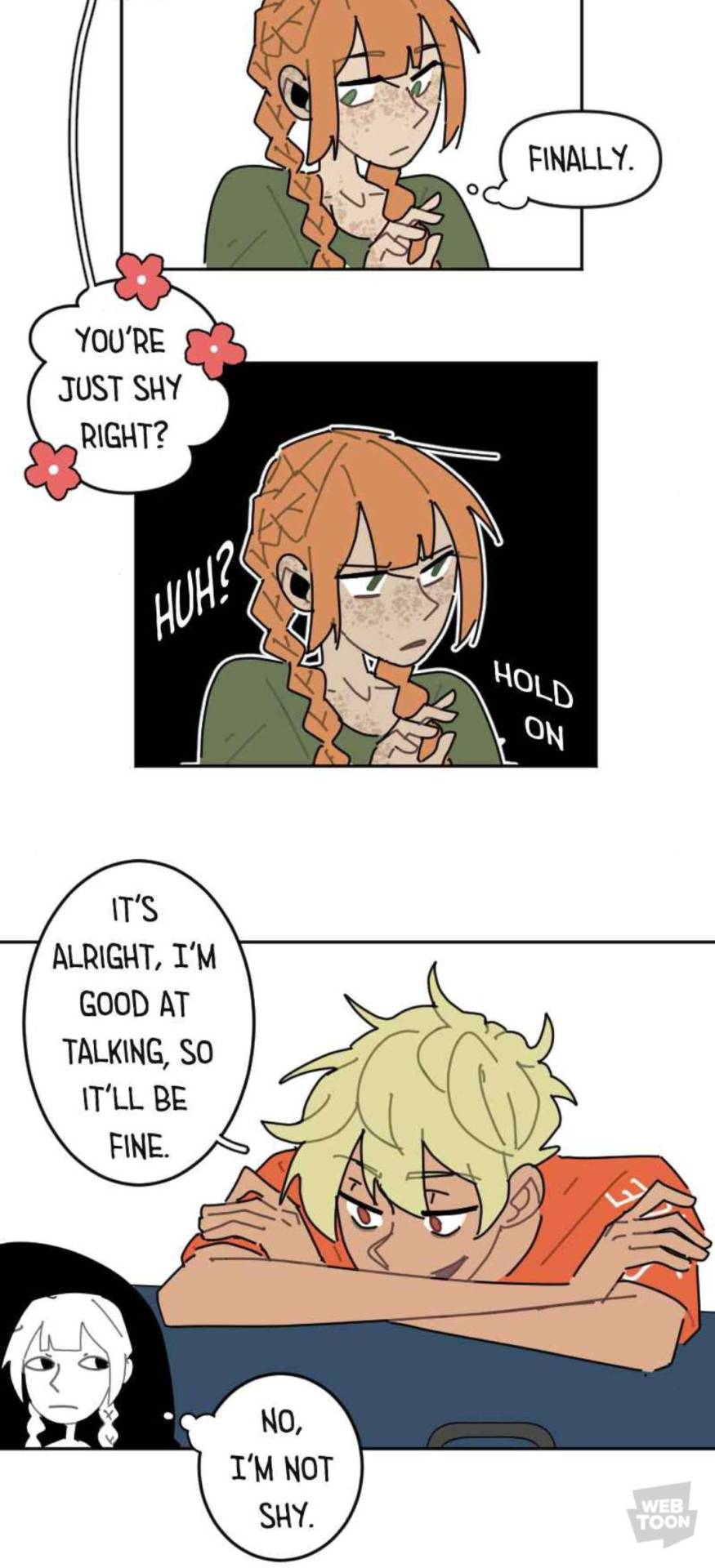
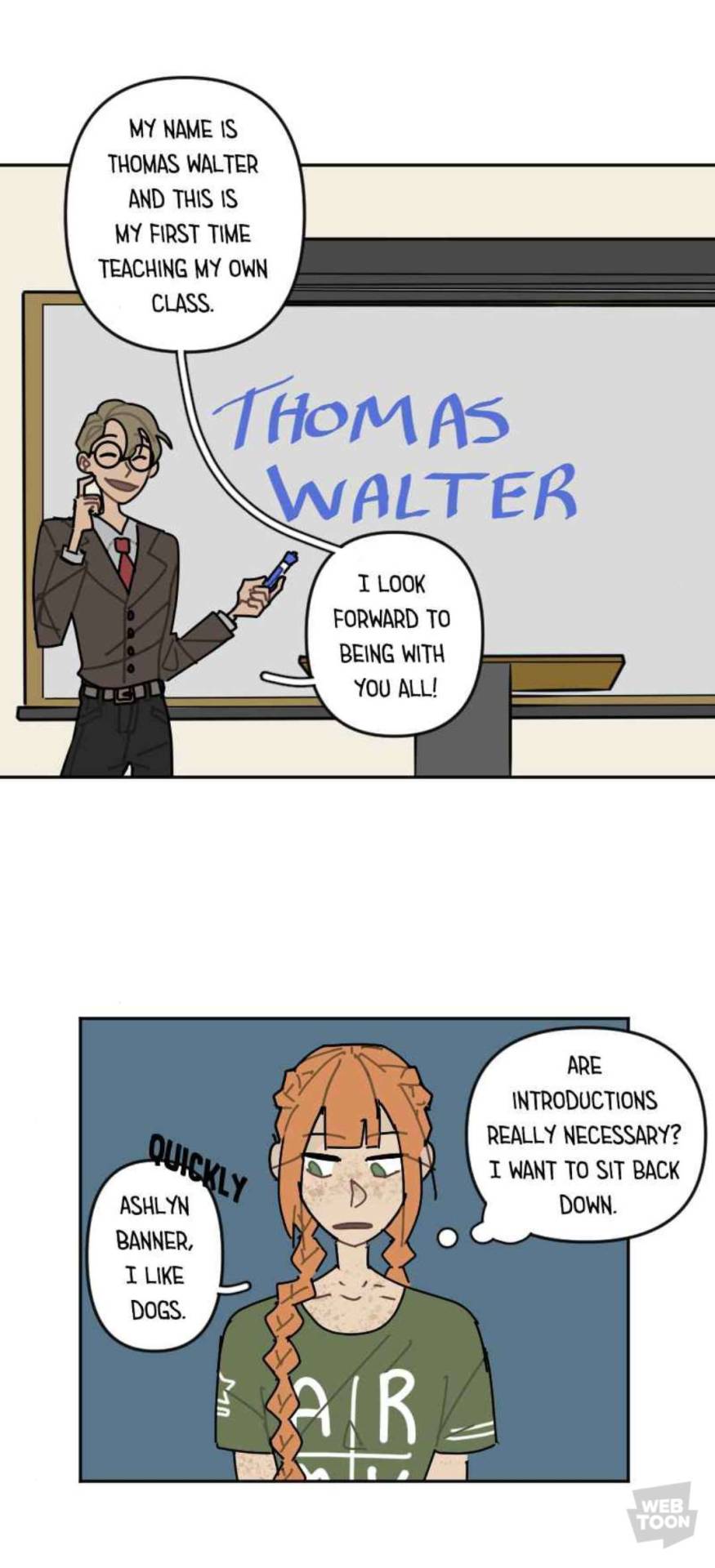
she doesn't mind being the leader of the group and definitely isn't scared, as seen as how she went up against Tyler when they first were in the phantom dimension.
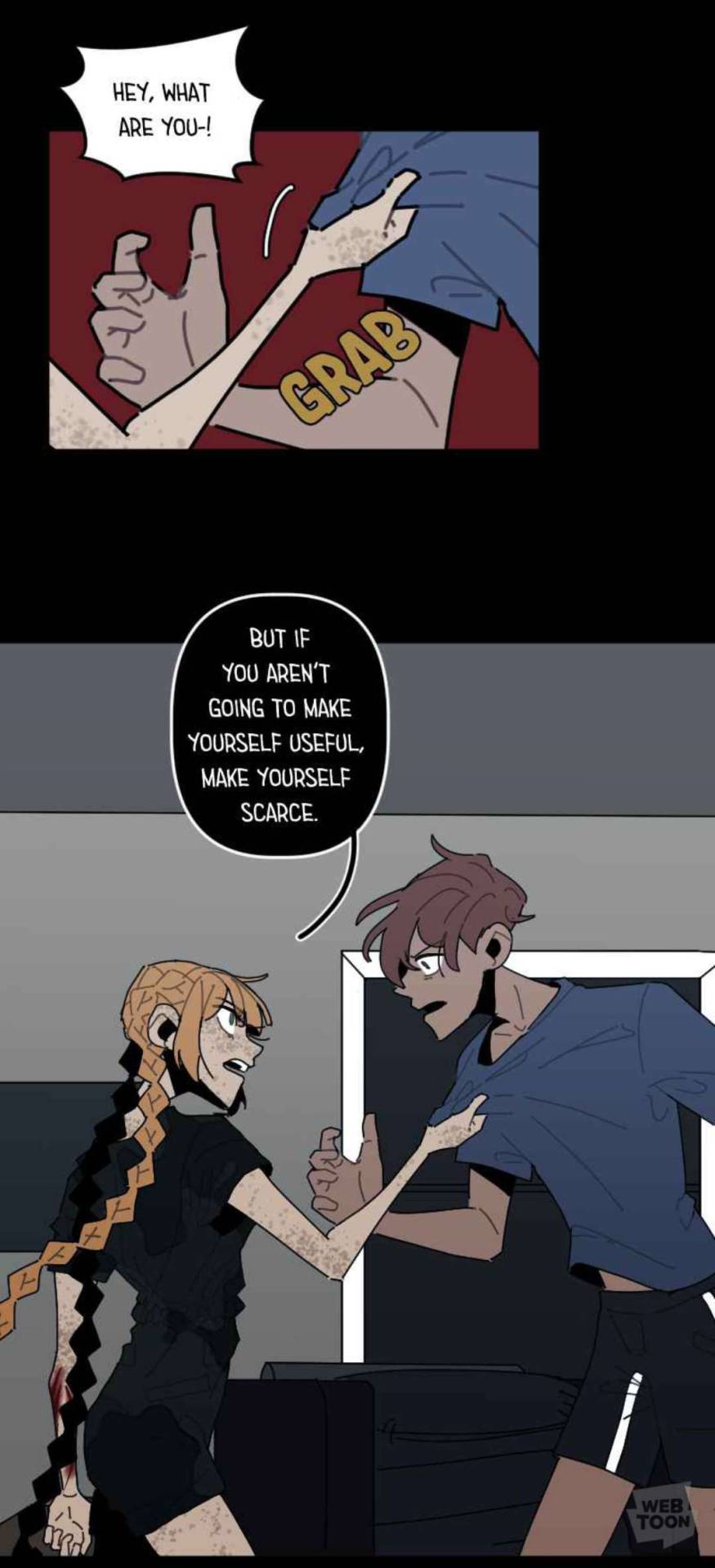
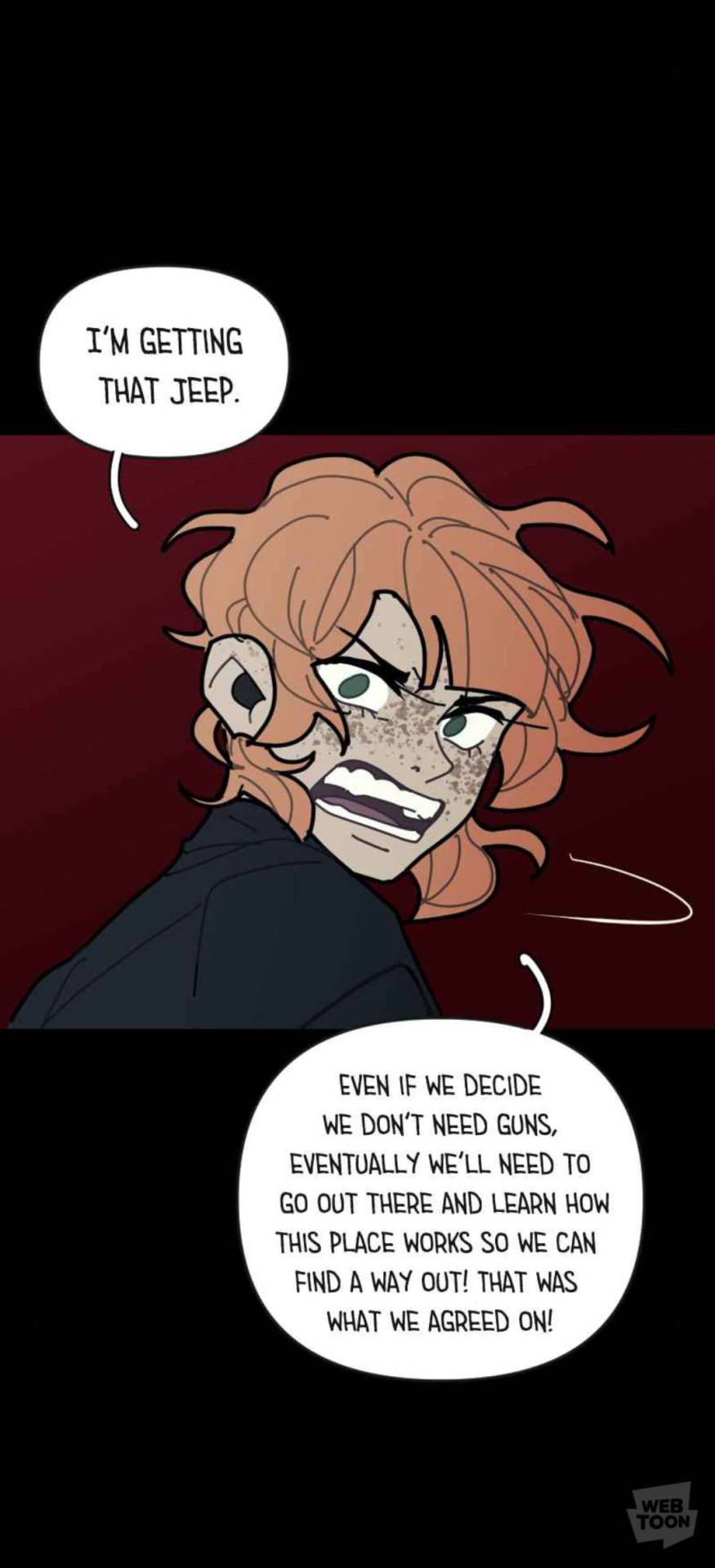
Ashlyn is basically the autistic girl who doesn't like talking much and has high boundaries, but once she warms up to her friends she's willing to do anything for them as seen as the recent episodes in the facility. I'm almost fully sure that she is autistic, considering the signs she shows.
sorry if this was a bit boring! the next ones will definitely be more interesting because the rest of the characters have interesting backstories and oh boy some disorders, I just wanted to start with Ashlyn to see if I could do this the way it was in my mind. I'm sure the rest can be pretty good!
I'd like it if anyone else mentioned more stuff. next up will be Aiden, who has a plethora of characteristics and it's definitely going to be really interesting. thank you for reading so far but I won't be writing Aiden's now because hhhhhh i need some sleep
#sbg (webtoon)#school bus graveyard#school bus graveyard webtoon#schoolbus graveyard#ashlyn banner#sbg#sbg ashlyn#sbgblr
98 notes
·
View notes
Note
Hey, hey sunshine, considering how many cute sketches with a Medic you draw for people
Can I ask a question to a Medic from your headcannons?
Mr. Medic, what was the first reaction of Heavy to your autism? Did he notice sensory overload or other signs of autism not characteristic of neurotypical people? (may the author forgive me for such stupid questions ":D)
from very near the beginning most of the mercs would know something is a bit different about him, it would be fairly obvious if youre paying enough attention. medic wouldnt really mask very much (if at all) so other people would pick up on something eventually.
the rest under the cut because. this got a bit longer than intended ^^;
when medic makes eye contact its either all or nothing, hes either staring into your soul the whole time or he isnt looking at your face at all. hes more than happy to talk for hours on end about what he wants to talk about and doesnt really notice that he hasnt given the other person a chance to speak for the past 40 minutes. he doesnt really hide his stims (with a few exceptions) so it wouldnt be uncommon to see him rocking in his seat even if only a little or wringing his hands or waving them around when hes excited or anything like that. hes openly very picky about certain foods and drinks. ive already mentioned him having very low empathy. he tends to already be fairly quick to annoyance and anger but nothing pushes him over the edge like hearing sounds out in the common areas of the base while hes trying to sleep or focus on something and hes gotten into more than one argument trying to get whichever merc is out there being loud to be quiet. etc etc etc i could go on.
but at first even though a lot of this would be noticed by the other mercs many of them would just assume its because hes a little weird and eccentric or something, but eventually each of them would probably get their chance to learn more about it or possibly be forced to learn about it if the situation called for it.
now to finally get to heavy xD
he would have noticed many of these traits and like some of the others just brushed it off as medic being a bit weird at first, but i think hed get his first realization moment the first time that medic has a shutdown in front of him (hed have meltdowns too but hed be more prone to shutdown. it does depend on the situation though). maybe they had a really tough battle that day, medic maybe loses a glove and gets some clothes ripped or something, everyones dying everyones getting hurt even more and worse than usual, its completely awful the entire time and medic starts getting sensory overload but has to keep going until they finish the battle obviously. anyway maybe they actually manage to pull off the win somehow and when heavy goes to congratulate medic, hes unresponsive. not completely unresponsive but hes walking around avoiding touching or even standing too close to everything and everyone, he hasnt said a single word since the battle ended (and come to think of it, he had been talking less and less as the battle progressed), any of his usual over the top expressiveness is completely gone. heavy tries to figure out whats wrong but all his questions are met with a blank stare and medic more or less trying to get away from him. so heavy is thinking this is awful,, something broke doktor,, but, look, heavy is a smart man ok?
hed figure out that medic clearly isnt in the mood for talking so hed instead try short yes and no questions in his usual quiet and caring way. are you injured? are you angry with someone? do you want to be alone? can i help? and medic maybe answers with a small head shake or a little hum of affirmation, which takes a lot of energy and he wants nothing more than to collapse right there on the floor, but if it means heavy will be able to understand whats going on and it will get him the best outcome as fast as possible then he tries his best. heavy doesnt really know exactly whats going on but he works out that the poor guy just needs to be alone for a while so he helps escort him to his room or the infirmary or wherever he leads and helps keep everyone else away from him. once they get there heavy stands outside and waits because he realizes that anyone coming in there to bother medic is definitely one of the worst things that could happen at that moment, and he does it without asking.
it would take several hours because it takes medic about an hour of sitting in a quiet corner to even recover enough to clean himself up from the battle, and after that he collapses on any flat surface he can find that isnt the floor to take a nap, and once he wakes up from that he spends a bit of time quietly interacting with his birds or organizing some medical equipment before finally he goes to find heavy and is pleasantly surprised to find him essentially guarding the door. at that point he answers any of heavys questions, explains autism to him as best as he can and in detail, lists exactly what caused the problem that day, exactly what some of his traits are, explains exactly what to do if something like this happens again in the future. etc. so after that heavy would connect the dots between this and some of medics other traits and would have a better understanding of it and do everything he can to support medic if needed and umm yeah :]!!!!
#autism#tf2#tf2 medic#tf2 heavy#thank you for this ask!!!!#i love talking about this so so so so much thank you for asking me this#no art just because i have some other things i have to work on#and if i drew a reply to every ask id be here all day#but yippee ^^!! this was fun for me thanks#replies from the void#the doc is in
29 notes
·
View notes
Text
rambling ass thought hence the readmore, but i had an interaction with my boss earlier that im still thinking about:
basically a customer was making some errant comment about eating chili, like, okay whatever, and my boss says something about how like. okay why should i give a shit. obv not to her, he was perfectly polite to her, but after when i said hes really good at pretending to be nice, he said sthn like 'yeah i have to be polite because i cant just say bitch idc' but also yeah why should he give a fuck really, he doesnt know her at all and he doesnt care and he has work to do. he is someone who clearly has been taught to always be polite and shit, right? now, i also dont really give a fuck about what a customer i dont know is having for dinner, but i also didnt really grow up with the heavy expectation to pretend to care abt small talk. i have to now, for my job, be passively polite, but i also have to do other things that dont come naturally to me, like try not to curse, etc. i also, as an adult now, understand the social role of being passively polite to people as a way to show like. we're all people who should at least care about each other in the grand scheme of things, and to not make things needlessly hostile- i dont care, but i also dont feel as irritated as he seemed, because i dont give a fuck one way or the other, and i dont feel such lifelong social pressure. to me its like wearing shoes. i understand the need to do so in public but at home i like keeping my feet on the ground. basically the thought im rolling around in my head like a marble is how i wonder if its .. creating its own issues, when people feel socially pressured to be super polite or pretend to care about each other, and its like, seen as this super important thing? i wonder if this is why so many neurotypical people and/or people who are on the spectrum slightly but mask a lot wind up seeming like theyre about to explode. OR, if its just a symptom of being super neurotic? because this dude is also super fucking neurotic, chronically stressed, and kind of grumpy at times
see, ive never really known how to mask, not really, and my parents never like taught me like super specific rules and manners and shit that other people seem to learn, i did have to learn a lot of this later, and consciously, but also as an adult now i tend to gravitate towards both autistic and deeply neurotic people so i have no idea how deeply these kinds of pressures and stresses are going on in others' heads. the only person in our friend group who wasnt autistic and was tied in knots over social rituals also had ocd and was excruciatingly neurotic so i cant rly judge all of social interaction off that, though it does explain how a lot of people act i guess
anyway its interesting bc this thought seems to come up a lot from other retail workers and especially cashiers, like being really spitefully annoyed with customers- and i completely understand why and where the feeling comes from i just find it hard to muster that much ire myself on a day to day basis over the really banal stuff BUT this is probably the most mentally healthy ive been in decades AND "feeling" my feelings is, due to autism, kind of weird and complicated at times so idk
#tldr: are neurotypical people/masking people more prone to anger over faking polite small talk due to the internalized pressure they feel#that i dont really grok because that was never drilled into my head so i just dont really give a fuck 1 way or another#or am i getting a biased sample here by only knowing people who are either autistic or deeply neurotic
3 notes
·
View notes
Text
someone please help me shorten my college essay oh my god
it needs to be 650 words, max, but it’s 897 right now, and that’s after editing.
i don’t want to take anything out, but I have to.
a teacher told me to take out every “I’m not normal” but i will absolutely fucking not
Pasting it below the cut, CW for ableism (my topic is how people will refer to people with autism and stuff as “special”)
Also if I wrote anything offensive lmk because the only people I’ve shown it to are neurotypical adults
At some point, almost every child is told that they are special. It’s a great feeling. Human nature is to strive for the top, and children especially enjoy having their inflated self-importance validated. But I quickly learned the downside to that word.
I couldn’t tell you the first time it happened, most things before high school are a blur, but I’ve often heard others called special. The meaning of this is nothing like the way special is supposed to mean. Special things are supposed to be important and unique, they matter a lot for one reason or another, it’s a very high compliment if you say it genuinely. But here it’s condescending. Like this is the core of the person being spoken about, and that core is a taboo. Like it’s pity for an illness, or warning of danger. They say the word as though they’re describing a creature, some animal of lesser mind. I still hear this often.
To speak with one of ‘them’ is seen as a great act rather than basic human decency toward a human.
“I’m proud of you for being friends with him.” “Why?” “Oh, you know, he’s special.”
I love being praised. More than anything else in the world. I need to know I matter. I need to feel skilled and important, the good kind of special. But when I’m praised for something like this I feel dirty. I can’t help but try to be the white knight when a friend is upset, I love being a hero even when it’s unneeded or undeserved, but not here. If I accept this praise it means I agree that I had to do something significant and difficult. It means that my friend is just a challenge that I beat. So, not only would I be lying, I’d also be insulting my friend, even if he wouldn’t be in earshot.
I want nothing more in life than to be special. The good kind.
I want to finish writing a good book and become famous for it. I want adoring fans, and to make a difference in their lives. I want to be talked about by people as someone cool and worthy of awe and respect, maybe even envy. I want to know that my friends consider me significant and wonderful. I want everyone I meet to be so earnest about their care for me that it forces out any thought that tells me I’m not worth their time. I want to carry around the good special for everyone.
But honestly, the word isn’t really that important to me. I don’t hold any affection for it. I’m upset that it dehumanizes others, but mostly I’m upset that it dehumanizes me.
I’m not clinically diagnosed with autism. I’m clinically diagnosed with ADHD, and that’s it. But I am sure I do not exclusively have ADHD.
When I go into testing rooms, I’ve been to quite a few since childhood, they present games to test my brain functions. This is an awful way for me to show my symptoms. I do the best I can on the tests because they’re fun and I want to show off. I tend not to have “off” days when I visit them, especially because I’m rarely around triggers. They don’t see me cry because the lunch man took my apple juice cap. They don’t see me flail around because I hear someone chewing gum. They don’t hear my autistic friends explain to me how my experiences match theirs to an alarming degree. I’m horribly emotional and sensitive and find it incredibly hard to not hate every kid outside my friend group. I need them to see my tears in action. I need them to see. I need to take my memories out of my brain and show them. They need to know everything I’ve done and they need to put a word to it and let me tell people.
Then, maybe, they won’t tell me to stop. To stop being too weird. To stop being too emotional. To stop being afraid of things no one else cares about. To stop “misidentifying” emotions. To stop all of it. To just be normal. Because no matter how much they want it to be true it’s not. It’s not. It never will be. I cannot be. I’m not normal.
There’s something both cathartic and terrifying in saying that.
I’m not normal.
“Stop doing that or they’ll think you’re special.”
I am. I am special. You’ve known me your whole life. People I’ve known for a year can see it. Why can’t you? Why can’t you see that a fundamental part of me is that my brain is not normal. Why can’t you stop making that face when I bring this stuff up. Don’t tell me I’m copying my friends. Don’t tell me my friends are weak. They are not weak. I am not weak when I act like them. When I am true to myself I am strong. Don’t tell me that strength isn’t the real me. You need to re-learn who I am before you get to tell me who that is.
I am not some normal girl, what makes me different is a bigger part of me than my loved ones would like to admit. I think they ought to know me as “bad” special, as much as I hate the word.
4 notes
·
View notes
Note
Hey, so I wanted to ask a question about your recent post regarding autistic sense of justice vs empathy. Would you mind elaborating a bit more on that and how you are able to distinguish the two? As an autistic person, I’ve been looking into ASPD/cluster-b lately after realising my affective empathy is probably a lot lower than I thought. But I’ve been wrestling with the fact that I’ve always had a strong sense of justice and have been considered relatively “compassionate”, if you will. So seeing that post was a real surprise and I’d love to learn more. Hope this makes sense.
Yeah, no problem. Heads up that I am quite new to being diagnosed with autism, so this can only be as accurate as my knowledge of ASPD and recent discoveries.
So since defining sense of justice here is kind of tricky, I’ll define empathy first and use that to compare to sense of justice.
There are two types of empathy: cognitive and affective empathy. When people use the word "empathy", usually they are referring to affective empathy. Affective empathy is being able to feel the emotions of other people, almost as if they are your own. This is how people with typical empathy pick up on the emotions of those around them without trying to do so or even thinking about it. Cognitive empathy is the ability to intentionally “put yourself in someone's shoes" to figure out what they might be feeling based on what you would be feeling in that situation. Many pwASPD still have cognitive empathy, and it plays a major role in that sense of justice - more than affective empathy would.
What I mean by that is that the sense of justice in autistic people does not require affective empathy at all. That sense of justice is basically a really intense reaction to people, whether it is the autistic person or someone else, being wronged or harmed unfairly.
As toddlers, typical kids begin to develop an instinct for what is and is not fair, and this tends to be extremely strong and cause problems for their caregivers because this sense of what is and is not fair does not really base itself in any societal rules because they haven’t learned those rules yet. Because of that, they tend to get upset as to why certain people make rules for others, why some people can do things others can’t, etc. It isn’t a cognitive thing where they consider why it is or isn’t fair, they just feel in their heart that it isn’t, and it leads to necessary conversations with kids about equity bs equality and such like that. As they learn social rules, and get the idea drilled in them that “life isn’t fair”, children lose most of this intense sense of fair/just and it is replaced with knowledge of how society functions and what is considered just in terms of that society.
In autistic people, though, that understanding of society may not be as complete as it is in neurotypical people. Therefore, many pieces of that original instinct of fair vs unfair stick around. Also, autistic people tend to not place as high a value on arbitrary social norms, so even the ones they do understand do not have as high a value as the instinct to want things to be fair. While the more inexperienced bits like not understanding equity vs equality don’t stick, they still may not understand or care why, for example, someone who went to college is treated as smarter than someone who didn’t, even if the person who didn’t proves themselves to be smarter. This type of thing tends to be upsetting to autistic people who experience a strong sense of justice, such as myself, while it doesn’t affect neurotypical people.
However, that doesn’t mean I understand how it makes the non-college attending person feel, I just know that it is not fair and thus wrong to act that way. Likewise, I may not understand how minorities I’m not a part of feel when they are left out of conversations they should be a part of, but I know instinctually that it’s wrong and I don’t like it.
Sense of justice is also much less nuanced than true empathy. So for example, because I struggle with empathy but have a strong sense of justice, I am personally (this is just speaking for myself, not everyone with this combo!) predisposed to believing in harsher punishments for criminals, for example, because I see it simply as “they knew they were doing something harmful and did it anyway, why should I care if they don’t like the consequence?”. Someone with stronger empathy would feel for both parties in the circumstance, whilst my sense of justice only cares about the one being “wronged”, rather than both people.
I hope this explained it ok? If you have any follow up questions feel free to let me know. In short I guess it would be sense of justice is caring about the situation more than the people vs empathy being caring about the emotions of the people more than the situation.
16 notes
·
View notes
Note
hi! regarding your social queues post
i feel like i'm experiencing a thing that's a bit similar to what you are dealing with down to the "I'm not autistic but this shit isn't neurotypical" thoughts (and if not, I'm really sorry for an impromptu vent just ignore all of this please and have a kitty ฅ/ᐠ•ﻌ•ᐟ\ฅ)
several of my prev psychologists link it to general anxiety and social awkwardness and yeah, that sounds reasonable, but what bothers me is that idk how to improve
i tend to overthink everything I say to the point where, even though I know what a normal response should look like I can't convince myself that what I said/wrote is articulated in a way that doesn't sound dumb/conveys literally the opposite of what I'm trying to deliver. answering a message after days of silence, which actively worsens my relationships, while I fear that answering with a 'stupid' message would be even worse or agonising over a comment I'm trying to leave on someone's work because, well, I think it's neat and cool and I want the artist/author to know it, but when I start typing my words look wrong and not genuine is a constant thing and I'm tired
and yeah, the worst is comforting people. my friend feels terrible, I can clearly see that and my heart is breaking for them, but I can never find a good thing th say. irl you at least can physically be there((maybe)) but online it's a nightmare
I was always told that words should come from the heart and I never got a feeling that was the case for me which just. i dunno what to do with this
hi hello! no, you're good, I have my ask box open for a reason and that includes venting n stuff like that, i don't mind at all!
yeah this is exactly what i'm talking about... like i have no problem picking up on things between the lines... but i always take too long to respond and by the time i think of something i am either too nervous or the window has passed. in my case, I know its because i have a "slower processing speed" than other people, which i've had since I was little, it's easier to think when i can type on a screen and be able to check if im making sense, but i don't do verbal stuff very well.
i've been in therapy as well, a long time ago, and i've been told i might be on the autism spectrum, and/or have add, but i'm pretty resistant to getting a formal diagnosis or even self diagnosing for some reason.
i think for me, and i don't know if this will help for you, i want to 1) get rid of the... mental block? filter? that my thoughts have to get through before I say something... because sometimes i come up with the thought, but don't say anything due to nerves. that'll help me get more thoughts out there and 2) get more practice with people... which is hard! i tried out both improv and drama club in high school because this is an issue i've been working on for a long time... it didn't really work, but i've learned that there are a lot of... scripts! that i can just use in a pinch. even if its just like, small talk and stuff, or if i don't have anything, i just turn the question on the other person and just listen!
i've been trying to make peace with the fact that i will probably never be as good of a talker as other people, but you and me brother we are probably just meant to be listeners... and nothing wrong with that... there IS stuff we can do to get better at talking, which i encourage. but don't get down out of reason for being quiet.
SORRY that got really long despite me not having alot of good advice but im struggling with it with you, good luck with finding something that works.. if u want to talk u are always welcome here, i enjoyed reading your ask!
#sorry im very bad at respondin g to things LOL#but i mean all of this genuinely#its tough not feeling like u are as alive.. or have as much of a heart... personality.. genuine... as other people#like ur a lowly npc...#but npc or not.. your feelings are still real right? your pain is real and what you feel when people talk to you is real#i believe you're real#but yeah it sucks and i hope we can find a way to live with it#cathugs \(•u•)/#ask#anon
4 notes
·
View notes
Text
2023/05/17 English
BGM: Aphex Twin - Xtal
Today was a day off and a perfect day for walking in the mountain. I went to that mountain and spent my time doing nothing with Aphex Twin's album "Selected Ambient Works 85-92". Indeed, there is no special thing to do in there even though it has rich greenery. All I do is just to face the nature or myself. And also I learn that the nature doesn't seem to be changing drastically by visiting there every week. But, maybe this is because I am an autistic person therefore a kind of monomania, I start learning that there is a certain change within that greenery or nature. That's like our life. Writing this journal lets me learn about this: Everyday is not a simple result of repetition even though it seems to be a cluster of happening the same things/events. And also, it doesn't mean that it is boring. Every single day is a precious day, so it has a certain worth to be lived carefully. Quitting alcohol and learning autism let me learn about them. In Japan, a lot of fiction of "infinite/endless loop" are read passionately, but we can enjoy some certain difference in that kind of "repetitive" "infinite loop", can't we?
When was the first time I listened to Aphex Twin's music? Listening to his beautiful tunes makes me calm... People say that autistic people like me feel calm when they do their routine works. It seems that his tunes are a kind of good medicine which enables me to do that routine, and also keep on peace of mind. But, this might sound so strange but, that kind of autistic people who like the firm calmness had done/achieved a lot of "breakthrough" things which had made this world confused and recreated. Autistic people tend to be in a panic when they find the sameness is disturbed... but I guess that those autistic pioneers/innovators would say "why? I have done what I believe in my life". But I still want to ask that why it becomes possible if I see the real world full of innovations autistic people made. Indeed, there must be more neurotypical innovators, but I still think that it is interesting that some great people who were free that dilemma, and who must live their lives as they wanted honestly.
This afternoon, listening to Lou Reed, I read Ryu Murakami's "YouTuber". I remember that I had read Ryu's novels a lot during my life because he has been a great/huge rival of Haruki Murakami, therefore treated as a new pioneer of Japanese literature. Yes, he has written a lot of "controversial" and "marvelous" masterpieces... and this novel is about a "trendy" and "catchy" topic, the YouTuber(s). But I guess that the thing he is trying to write/tell is also about a "classical" one which is "the basic/true essence of our limited life". Indeed, this novel has no reality, and also the confession within it is too unacceptable to read, but I accept it is about our sad fate or nature therefore I never treat it as crap. What is that "sad fate/nature"? I think that is the fact that we will die one day, and also we have to be beaten/defeated by this real or this world itself. That can be described as "everything is in a flow" like some oriental religious thoughts. And, not surrendering to that fate, but trying to live against that fate would give us the meaning or beauty of life. Our passionate power of life must be beautiful... I accept this is the message from this novel.
This sunset time, I met an ex-staff of my group home again. As a friend, she had asked me that "have you heard of the app ''WhatsApp'?". I heard that a member of her family is living in a foreign land, and that person had said to her that he wants to use her that WhatsApp, instead of LINE. Therefore she wanted me to tell about it. But I am just an old/out-of-date dude so never able to say that I can understand how to use WhatsApp. So it took about half an hour to control/set the environment of her smartphone to enable her with that family member via WhatsApp. She could communicate with him by this setting I made... and she said to me a lot of thanksgiving as "I really appreciate it! Every shoppers I went only installed it, but never told me how to use". But I don't think this is irrational because WhatsApp is not a popular app within Japanese users. For foreign users, the app LINE which is almost Japanese "national" app we Japanese use every day passionately would be "what on earth this app is?". Indeed, this era becomes globalized and the world becomes flatter. But, this is the real therefore it is interesting.
2 notes
·
View notes
Text
Also while I was with friends, we played a game called Stir the Pot, which is basically a card game where you call people out for things prompted on the card. And literally everything that I got "called out" for was just. Symptoms of autism lol. So much so that one friend leaned in and asked if I had a diagnosis. I burst out laughing because A: I've been wondering if I'm autistic or not and B: I thought I was doing a pretty good job at masking but apparently not.
I really like the game. Everyone is completely honest and I get to learn how people perceive me and I get to learn about other people in return and nobody gets upset about the sort of mean ones, it's just telling the truth.
It honestly felt very relieving to have someone validate the possibility that I might be autistic because I think I tend to be a hypochondriac but the more I delve into the things I'm supposedly hypochondriac-ing about they usually tend to be true....sooo...
Here's some of the traits I got "called out" for so I can put them in my little brain pocket for later when I think I'm just making it up:
"Who has the strangest walk?" I got assigned this one and the reasoning was that I have "the autistic walk" I asked them what they ment and they said "you just know it when you see it". I should probably point that they're not neurotypical and have an autistic sibling and autistic friends. I would love to know what the walk is because yeah, I feel strange walking sometimes like I'm not doing it Quite Right
"Who mispronounces words the most?" I didn't even know I mispronounced words, or even what words they are. To be fair, my mother has a sort of reading/speech impediment and I've spent 90% of my life with her.
"Whose personality is the hardest to adjust to?" They said that it's hard to tune into my way of thinking because it's so different but once they do it's refreshing because it's so easy to vibe with, which, if that doesn't scream autistic I don't know what does.
"Who would you most like to see host a show of Saturday Night Live?" This one caught me off guard. A surprise to be sure, but a welcome one lol. I've never watched SNL, but I would like to be an internet personality. I just think I'm fun to watch and maybe study under a microscope. Don't want to be super famous though, just like a micro-celebrity.
There's more but I can't remember them and also it's ridiculously late like I just keep saying up later and later ughhh
3 notes
·
View notes
Note
Finally, someone who doesn’t baby Brahms all the time! I literally got giggly with your headcanons bc I think the same for him as well. A lot of people keep watering down his character as the “man baby who can’t cook, clean himself, or do this or that” and it’s kinda frustrating to see others not understanding his character more when writing about him, especially since there’s evidence he’s capable of a lot of things. I actually find it quite funny when people draw Brahms that way however when it comes to writing him… Anyways, I would love to hear more of your headcanons! It fills my hyperfixation on him (as there’s literally only 1-2 posts each day for Brahms).
Also if you don’t mind, you can skip this part if you want, what do you think about the theory of Brahms parents starting the fire in order to cover up what Brahms did? I’m staying on neutral ground for this but I do think it’s an interesting theory.
It’s funny you mention that theory 👀
So for me personally I don’t exactly think it was to cover it up, but I do think they started it. Personally, I retcon everything that is the boy 2 (though I loved the main character child who was mute. He did amazing but I think it was shit writing and a cop out because the actor who played brahms pulled out and for good reason too.) so without acknowledging the second movie here’s my personal take. I am currently a psych student (and while I am very much not an expert like I can’t stress it enough I’ve got Swiss cheese brain,) and from what little I’ve learned usually children who were at brahms age (8 years old) aren’t exactly capable of processing death. Obviously it varies case to case but on an overall scale, he’s not able to comprehend it. I personally think Emily cripps death was an accident. Maybe they went to play in the woods rough houses and she fell cracking her skull open. Or maybe she was picking at him (cause honestly emily looks older than brahms. Grant it girls tend to grow taller first compared to boys, but overall she looks like she’s 10.) and I personally think brahms has autism and/or bpd (I touched on it In another ask I did you might have to sift through my blog. Sorry it’s a chaotic enigma of everything I love lol.) but I think he might have been forced to hang around her for family ties and potential future relations (arranged marriages etc etc.) this was inspired a bit by a fic I read though I forget the name of it. If I find it I’ll post it. But I think he might not have enjoyed being around her as much as Everyone believed. His father describes him even at a young age as “odd” which to me feels like they had a son late in life and he wasn’t neurotypical. He is less sociable, doesn’t fit into their rich lavish life and fit the perfect image they have. So I think there was already resentment a little? So imagine their reaction if Emily was playing and picking at him, maybe he pushed her and she fell. After all her head was cracked open. If she fell and rolled off the rocks she hit it could look the same. A lot of Emily’s death is rumor and gossip in the town. Imagine brahms nudging her thinking she just fell asleep but she’s not moving. He gets freaked and runs back fussing she won’t wake up and she’s being mean. Alarm bells are going off for his parents. I think they didn’t like their son because they clearly hated it he deviated. They were strict, had a specific image and didn’t make much room for change that was clear as hell in how they treated greta and brahms if I’m honest. And I think it’s fucking weird his parents deadass didn’t tell anyone and participated and hosted a search party for a girl they likely knew was dead. I think they were more worried about how this would look and instead of getting their son help even if it was intentional (though again that’s still on them because they fucked up somewhere in parenting, though again I believe it was purely accidental) and with this new situation coupled with previous resentment over their son not being normal (aka I Headcanon his parents are ableist) they had their son wait somewhere. Locked him in, and didn’t realize he knew the walls because he explored in his free time. And they set it on fire before the police could show up to question the young boy. (Because btw he wouldn’t have been tried as an adult. He’s too young and again can’t even conceptualize death let alone fucking fake it like ???? That was his parents.) and I think they had no fucking clue he was alive until they heard him calling from in the walls now with burns. And even the. They didn’t get him medical attention they stuffed him in the walls and pretended he wasn’t there as he grew. They gave themselves a do over because they felt they fucked up and that’s why their son was how he was. Their love was and has always been fucking conditional. That’s my personal take of a theory.
As far as a Headcanon, I’m reaching a text limit so have this one: he about cried the first time he had a fresh meal out of the walls. Potatoes just aren’t the same after their frozen and he simply can’t go back. He loves hot home cooking (pair that with southern cooking he’s inlove lol)
#I’m on mobile#and I hit enter and it made a huge gap idk why#rip if it looks fucked up#I’m southern (United States)#so good old home cooking after eating shitty bland frozen food left overs#that are child size portions??? yeah#he can’t go back#at all#also isn’t a picky eater#p sure he’s from south England too#that’s where the accent usually is from in England#quinn speaks#brahms headcanons#idk is this a meta analysis#brahms the doll#brahms hillshire#brahms heelshire#brahms#brahms the boy#the boy movie#the boy 2016#the boy#anon ask#i love you anon#anonymous
48 notes
·
View notes
Text
His Dark Materials Thoughts: Daemons and Disability / Neurodivergence
More stupid His Dark Materials thoughts and headcanons because I still can’t get over this series.
I’m really curious how various disabilities would interact with having a daemon. I’d guess that for a lot of conditions the daemon could basically fill the role of a service animal, especially if the person had the condition from childhood so they could settle in a form that was capable of helping - e.g. daemons assuming forms with strong senses of smell to check for allergens. And this would probably be true for some neurological conditions where there’s something physically messed up in your brain.
However, I think for neurodivergency, it’s different: if the human is neurodivergent their daemon is neurodivergent as well. And while a human and daemon are “one being,” daemons still have their own personalities and emotional needs.
Using autism as an example because I’m autistic and can speculate based on my own experiences:
Autistic people are usually very close to their daemons, even by the standards of the setting, because while anyone’s daemon inherently understands them better than other people do, the gap is much, much wider for ND people. Real talk, I think I was drawn to this series and the concept of daemons so strongly because the idea of a companion I could fully trust and interact with without the constant fear of breaking some unknown and unspoken rule and who fully empathized with me was something I wanted soooo badly.
A lot more sensory information is “transmitted” between human and daemon than most people notice because the brain tends to filter it out. Autistic people’s brains aren’t as good at filtering out “junk” sensory info though, and this includes what comes through over the bond between them. You can’t actually see through your daemon’s eyes but autistic people tend to feel shared sensations more intensely and pick up on things like smells and textures that a neurotypical brain would tune out (and this works in both directions). This makes autistic people more vulnerable to sensory overload than in our world.
Sometimes only one of the pair is verbal, or at least verbal with others / much more comfortable talking to others. If it’s the human, people tend to not notice because “daemons should be seen and not heard” is kind of the norm in the setting but if the daemon is speaking for the pair most of the time it’s seen as weird. Some autistic people may also be more comfortable talking to other people’s daemons than to the humans, which isn’t technically part of the taboo but it’s pretty frowned upon.
For both tactile-seeking and tactile-defensive people, the daemon’s settled form is often determined by the need for physical affection - either because as they grow into teenagers it becomes less socially acceptable to touch other people as much as they need to, or because the only touch that feels safe for the pair is with each other. A settled form doesn’t always follow the human’s preference, but is always a form the daemon is comfortable with and likes. Daemons settling in forms their human actively hates is rare, and usually means there was already serious conflict between them with the human refusing to accept their nature - i.e. sailors’ daemons usually take seabird forms or mammals like otters or minks that can stray away from the water, settling in a dolphin form was noteworthy for a reason because it’s such a drastic act, and IMO that was probably caused by the human trying to abandon the sea entirely and fighting with his own daemon about it until she was like “Let’s see you take us away from the sea now!”
But anyway: daemons don’t just settle in forms based on symbolism or social convention if it’s going to make both them and their humans miserable and/or mess up their relationship IMO, and usually they show a preference for forms similar to their settled one in the years leading up to settling (e.g. Pantalaimon clearly liked his stoat/ferret and wildcat forms and mostly took other ones for reasons of practicality and convenience, and I said this in another post but I think he became a pine marten because it was the closest he could get to combining the two). If a pre-adolescent human and daemon are super cuddly with each other and that touch is really important to them, the daemon will probably settle in a form that’s compatible with that. It’s rare for autistic daemons to settle as something as small as a mouse where they could only be carefully pet with one or two fingers, for example, and they usually take mammalian or sometimes avian forms.
Brushing a daemon’s fur, and other techniques such as joint compression that are hard for a person to perform on their own body, can help both of the pair calm down and cope with sensory issues.
Unfortunately, given how fucked up the culture in Lyra’s world is, I shudder to imagine how they treat neurodivergent people. I can totally imagine people treating this closeness as the cause of autism and not a symptom, and treating it as a child “being socially impaired because they only interact with their daemon / let their daemon do too much for them and never learn to socialize with other people.” Aside from attempting to cure autism with Intercision, there are probably a bunch of horrible, abusive treatments passed off as “therapy,” like forcing children to do therapy sessions with their daemon trapped on the other side of an opaque, soundproof wall (doesn’t interfere with their bond if it’s within the separation limit, but keeps them from seeing / hearing / touching each other), caging the daemon, muzzling them to keep them from speaking for their human, or even not letting them sleep in the same room.
Another common problem is parents / educators treating an autistic person’s daemon like a service animal and offloading their responsibilities on them. Just expecting them to handle something like a meltdown or panic attack by themselves because “You’re part of them, you understand them!” and ignoring that the daemon also has fears and anxieties and sensory issues.
Expectation: Your autistic child’s daemon understands them better than you ever could and will be able to quickly and discretely calm them down from a meltdown / sensory overload without you needing to get involved and actually do your job as a parent.
Reality: You have two autistic children who share a soul and feel each other’s emotions and pain, and one of them likely has at least one sense that’s way more sensitive than a human’s. They can certainly be a source of comfort and support to each other, and can pick up on each other’s warning signs and remind each other to use coping strategies / get out of stressful situations and not try to “push through,” but this is a skill that takes time and maturity to learn, and it only works before the pair are completely overwhelmed. As stated above autistic people feel sensations and emotions from their daemon extra-intensely, and vice versa. A full-on meltdown or panic attack is such an overpowering flood of negative emotions that, combined with the stress of whatever caused the meltdown in the first place, usually just overwhelms both partners, especially in children. The best you can hope for is whichever one holds it together a bit longer is able to help their partner into a safe place and ask someone for help. Even if the daemon (or human) doesn’t have a meltdown their emotional battery will still be absolutely drained for probably the rest of the day.
176 notes
·
View notes
Text
Some More Trivia From Sorbet and Gelato's Backstory, As Requested By @dicksoutformtl
Discovering Their Sexualities
Sorbet, as many queer folk do, had somewhat of an incline about his sexuality but wasn't able to put a word to it until he was a teenager. He didn't witness much homophobia from his immediate family but he was aware that much of wider society found it shameful. He would witness homophobia from his schoolmates daily. Sorbet wisely waited until he had already built up a fearsome reputation in the street gang to start being open about his attraction to men, at which point nobody was brave enough to cause him trouble on it. In short, he had a relatively easy time compared to how it could have been.
Growing up in Russia, Gelato witnessed extreme homophobia on a regular basis. His parents were very vocal about their hostile opinions against queer folk and would make this clear to their children. Despite all this, Gelato did not actually have the foggiest clue that he was attracted to men, simply assuming he was bad with women because, well, he was bad with everyone. He really didn't realise until he met Sorbet, at which point he had a very harsh awakening.
Once joining Passione, Sorbet and Gelato had little choice about whether to be open about their relationship since it was very much tied into their legend of the roaming, fugitive assassins who countless witnesses had seen being affectionate to each other. They did get some flack for this, but most were still to afraid to insult them. By the time they joined La Squadra, they had even started introducing themselves as husbands, for an idea of how little fucks they gave about what people thought.
Gelato's Neurodivergencies
I've written about Gelato's autism here but in response to your specific questions, many people with this kind of neurodivergency report that their symptoms tend to improve and worsen with their other stresses, so I could see Gelato working the same way. He gets periods where he can basically function as a neurotypical person on the outside, and periods where he straight up struggles to form words. Overall I'd say things generally got 'better' over time in the sense he learned to manage his symptoms better and form a more positive self-image.
The Progression Of Their Relationship
Sorbet and Gelato had to come to a regular rhythm for their relationship pretty quickly after going on the run together. Obviously they couldn't 'settle down' while being fugitives but their blood pact had pretty concretely marked them as a forever couple. I have... um... I have actually written about the point where things start to get saucy between them if you're interested. This happens about a month after they flee Naples, which shows that the pace of their relationship did slow down somewhat after the first weeks.
Their 'middle relationship', which I suppose is best defined by the point between them settling down in Passione and joining LS, was generally quite happy though marred by the realisation they actually would prefer a normal, domestic life after all, which could never happen while they were tied to a gang.
Their decision to 'marry' was actually tied to them joining LS, because they saw it as a sort of new beginning for them, so what better time to start calling themselves husbands than now? I believe one of my first posts on here was a semi-serious headcanon that their wedding day began with them deciding to get married during their morning coffee, continued with them robbing a jewellery shop for rings, and ended with them making out in an alleyway while the police were searching for them.
Sorbet's Siblings
Sorbet did try to find his family again after returning to Naples, but the house they had lived in was empty. Desperate to apologise for leaving, he continued to search records for what had happened to them for a number of years in his spare time, and eventually, was able to piece the story together.
While Sorbet was on the run with Gelato, Sorbet's mother had passed away from health problems caused by her addictions. The eldest remaining sibling, who had taken over care of the children after Sorbet left, decided it was time to finally come forward to social services about all the neglect and deprivation that had been going on, making the difficult decision to surrender the two youngest children to foster care. This allowed the rest to get by together on the oldest's salary, and while she was unable to resume her studies due to the workload, the brother and sister that stayed with her both went on to university. The two put into care were also doing well, and remained in regular contact with their birth siblings with the blessing of their new parents.
Reading over what had happened, Sorbet realised he could not burden his siblings with returning to their lives, especially since it could harm their careers or even endanger their lives to be linked to a mafia assassin like that. Gelato was saddened by this, eager to meet Sorbet's family, so Sorbet promised they would go to them together once they left Passione.
17 notes
·
View notes
Note
Hi Echo! First off, I want to say I always love seeing you on my dash, especially your writing! It's always amazing!
I wanted to get your thoughts on something relating to autism. I've thought on off for a few years that autism might explain some of the things I experience (my decade long obsession with shadowhunters, why my tone of voice doesnt always match my intent/the words, rocking/flapping hands/curled toes, sensory things). I found that list you posted a while ago about women and autism, and I have to say, I related to a fair amount of it.
But I feel like there's a huge caveat to this explanation/relatability, and it's the social aspects. I do identify as an introvert, but I don't usually struggle in social situations. I can "read the room" usually and know how to act in professional situations, etc. Sometimes I don't catch jokes and I'm a pretty literal person ie I take things at face value. I know social things are a large part of autism.
I'm just curious if this is something I should persue or if I'm just looking for something that's not there. I know you aren't a medical professional or anything. I guess I just wanted an autistic person's perspective on my experiences.
Obviously, there is absolutely no pressure to answer this at all, and if I am way out of line, please tell me!!! I don't ever want to step on anyone's toes or do anything to hurt someone else. Thank you so much for your time! 💜💜💜💜
Hi Anon! Thank you, I’m really glad that you like my writing 💙
You aren’t out of line and I’m happy to try to answer your question! I don’t have a yes or no for you. Obviously I cannot tell you whether you’re autistic or not, or even if it’s worth pursuing for yourself, but I’ll try to share something of my own experience here. To me, it comes down to a few things:
1) If you feel like you have autistic traits and/or the tools and concepts developed with autistic people in mind are useful to you, even if you don’t know for sure whether you are in fact autistic, you are allowed and I would say encouraged to use them and to interact with the community to find more things that work for you!
2) I would argue that there is no specific trait that is common to all autistics. Moreover, traits can present as the exact opposite in two people and still be signs of autism in both cases. Autism is poorly defined, to be honest, and it’s hard to say where the limit is, but it’s more about a convergence of traits than a list of symptoms that every autistic person has. The diversity in our community is astounding and possibly even greater than among neurotypical people. So it is entirely possible to be autistic and struggle little with social stuff/communication. In my own case, though I do struggle with certain specific aspects of the social game, my sensory issues and executive dysfunction are much more of a disability in my life. Which brings me to the third point:
3) Most traits don’t look like you probably think they do. I used to look at lists of symptoms and feel like barely any of them applied to me. I would see “stereotypical and repetitive behaviors” and be like “I don’t always do things at the same hours and I don’t rock back and forth”, so this can’t possibly apply to me. Except that later, I stumbled upon a fanfiction with own voices autistic character that had them talk about stimming and stimtoys, and I looked up the word. Turns out that sucking your thumb is a stim. That listening to a song on repeat is a stim. That doodling is a stim. That sitting on your legs is a stim. Turns out that doing small things in the same order is a kind of routine, and it’s doesn’t have to be at the same time of the day. Would you have called that “stereotypical and repetitive behaviors”? I do all those things, and many more.
Stimming was the obvious example here, and it happened to be the place where I started my journey (or that part of it). I had been curious about neurodivergence (without knowing the word for it) and autism for a decade before that, but I had never stumbled upon, you know, actual autistic people describing their experience in a way I could relate to. And when you look at list of traits, at psychologists’ accounts, even at published biographies, you have to know what to look for. I developed a specific interest about autism and learned to read between the lines but it’s impossible to do that when you don’t already know. And even today, I still have frequent eureka moments of “oh, that’s why I do this.”
So on the social side, it may look different than what you’re thinking of. I have no problem with metaphors, and generally not with sarcasm or jokes. I can “read the room” as you said, for the most part. I’ve been talking at conferences and mingling at coffee breaks and having meetings with colleagues for years, and none of them ever thought I was autistic. I may have a hard time approaching someone to make small talk, but not that much more than colleagues my age. I don’t go out a lot and I don’t make friends super easily, but I do (well, did) go out for drinks with colleagues or friends. So I didn’t think I had a real issue there, beside being very introverted and a little shy. Except that I was tired. I’d come back from having drinks and would go straight to bed. I’d come back from a three days conference and get sick for a week. I burned out fast and brutally. I rarely make eye contact, but I tend to look at people’s mouths, so no one noticed. Mostly I didn’t know that I struggled with things until I read other autistic people’s experiences. And moreover, I didn’t know how exhausting it is for me to communicate with neurotypical people, even if I appear, even to myself, to do it fairly naturally, until I stood in a room full of autistic people for five hours and felt rested at the end of it.
That’s because some of us, me included, learned to mask at such an early age, and in such an organic way, that we don’t even realize that we do it at all. At least not until we burn out so badly that we’re forced to face it, or until we luck out and stumble upon the testimonies of other autistic people and recognize ourselves there. So if that’s your case, if you read blogs and texts and watch videos by autistic people and you recognize something, then I would say it’s always worth investigating. Maybe you’re autistic, maybe you’re neurodivergent in another way, maybe you’re not, but knowing yourself is always going to benefit you, and so is knowing about the diversity of brains and people that exist.
14 notes
·
View notes
Text
Adora might be autistic too
Alright, most people in the SPOP fandom agree that Entrapta is autistic, as her coding is extremely obvious. However, some of us also believe that our beloved protagonist Adora is on the spectrum as well. She comes off as quite the aspie, and while Asperger’s is no longer a diagnosis in the DSM-V (but is in other manuals), it falls under the blanket diagnosis of Autism Spectrum Disorder (ASD) and its diagnostic criteria is still useful in analyzing people for signs of the disorder. In analyzing Adora’s character I will refer somewhat to both disorders, with the understanding that Asperger’s is a specific manifestation of ASD.
I would like to preface this by saying this is a headcanon and people are free to disagree with me. Some of these characteristics I’m going to bring up could also manifest because of her very sheltered upbringing in a cult-like atmosphere or mental illnesses such as anxiety and complex PTSD (both of which she arguably has). I am autistic myself, so obviously I am inclined to interpret these symptoms this way, but to each their own. It’s also worth noting that Adora has a lot of symptoms that cross over with AD(H)D, a cousin disorder to ASD, and it’s totally possible she has both.
In any case, there is now enough evidence hinting at Adora’s neurodivergence (especially now that the Rebel Princess Guide has been released) that I feel the need to explain this theory in detail instead of just occasionally mentioning it. So here goes...
She’s naive/easily manipulated
This one doesn’t really need explaining, we’ve all seen it. Adora assumes people are telling the truth because why would anyone lie to her? That is such a relatable spectrum feel. She was handily brainwashed by Shadow Weaver in the Horde, while some of the others didn’t seem to swallow the propaganda so easily. This is of course partly because of the special attention and affection Adora got from Shadow Weaver, but she had to be vulnerable to manipulation in the first place for it to work.
Later, she trusts Huntara easily in the Crimson Waste despite Bow and Glimmer’s warnings about her questionable character. Adora happily follows her into a trap even once Bow and Glimmer tell her they're going the wrong way, reasoning it’s probably a shortcut rather than reevaluating her misplaced trust. This can be partly explained by how she‘s gay af for Huntara, but still.
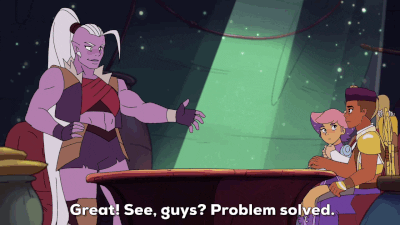
(Interestingly, the episode cuts straight from this moment to the obviously autistic Entrapta going against her own friend's advice and refusing to give up on the portal machine despite the obvious warning sign of Hordak’s violent dismissal. Parallels, much?)
Her difficulty understanding other points of view
A lot of Adora’s conflict with Catra is predicated on misunderstandings, and she has a hard time understanding the effects her actions have on other people, Catra in particular. For instance, she misunderstands Catra talking about ruling the Horde together as being purely about power, while Catra’s actual goals are safety and Adora’s companionship. That miscommunication is not just Adora’s fault, but it illustrates that she has difficulty understanding other people’s needs and motives without being explicitly told.
This isn’t just a problem with Catra, either. In general Adora has a difficult time understanding other’s motives and feelings. For instance, she doesn’t understand Glimmer’s insecurity over Bow’s friendship with Perfuma at Princess Prom, and she can’t fathom why Entrapta would choose to work for an evil faction, going so far as to assume she must have been brainwashed into it. This is because, just like with Catra, she doesn’t understand that some people’s priorities are not the same as hers.
Autistic kids tend to reach developmental milestones at different times than neurotypicals, sometimes being way ahead and other times falling behind. One such marker that is usually slower to develop and often stays impaired is theory of mind, our ability to a) understand that other people have different perspectives and b) understand those perspectives. Adora’s difficulties being able to put herself in someone else’s shoes definitely lines up with this symptom.
She’s clumsy
For someone so athletic, Adora sure lacks coordination. This is a commonly cited symptom of people with Asperger’s, though it shows up in people with other forms of ASD too. In general, autistic people often have difficulty with fine and/or gross motor skills, and this can lead to being accident and injury prone. According to Catra in 3x05, Adora bumps her head a lot. That may have just been a callback to 1x01, but either way clumsiness has been part of her characterization since the beginning, one of her many loveable, adorkable qualities.
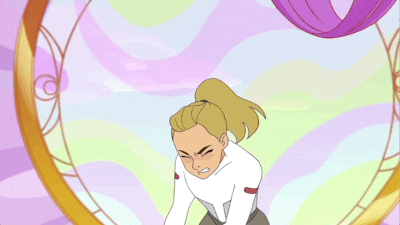
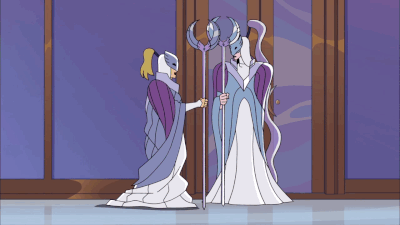
Her lack of social and self awareness
Adora can be painfully oblivious to her own inappropriate behavior. There’s several examples of this throughout the series, one of the more costly ones coming at Princess Prom. Shocked by Frosta’s youth, Adora fails to register how maybe this (in front of Frosta, with all eyes on her) is not the time to remark on it. She immediately realizes this was the wrong thing to say (or at least not something she should shout), but that small delay causes both her and Glimmer a lot of embarrassment.
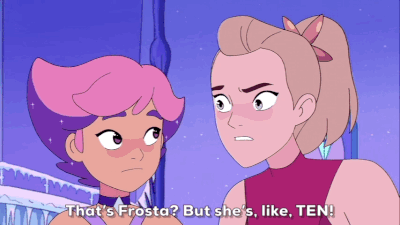
Part of the issue here is that she loses control of her volume, which in itself is a common problem for those of us on the spectrum. This isn’t the only time we see her have this problem, either, and it’s amplified (tee hee) when she’s drunk/infected.
More generally, one of the funniest examples of Adora’s poor social awareness comes when she barges into Huntara’s flirtation with the bartender in the Crimson Waste. She’s so focused on her task of recruiting Huntara that it doesn’t even occur to her that this is an intimate moment and intruding would be rude.
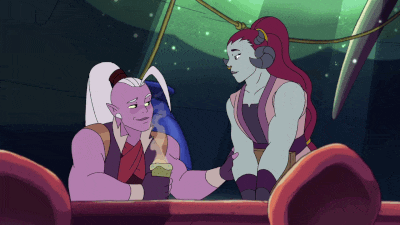
In the Rebel Princess Guide Adora also says she wishes Queen Angella would let her make some adjustments to the uniforms of the Bright Moon guards, which implies she tried to make these suggestions already. Maybe she figured She-Ra could suggest anything, but as both a newcomer and a royal subject that’s a bit of a faux pas. Chances are, that went right over Adora’s head.
She can’t read a room to save her life (literally)
This is another, more specific aspect of social awareness. Adora has difficulty picking up on the implicit rules (social norms) when she enters unfamiliar situations, and has a tendency to step on toes because of it. She also doesn’t understand when her friends try to nonverbally communicate what she’s doing wrong, and nonverbal communication deficits and problems with social awareness and insight are two major symptoms of ASD. One specifically listed example is “difficulties adjusting behavior to suit social contexts”, including:
Lack of response to contextual cues (e.g. social cues from others indicating a change in behavior is implicitly requested)
Unaware of social conventions/appropriate social behavior; asks socially inappropriate questions or makes socially inappropriate statements
Here’s a couple specific example of times where Adora misses or misunderstands nonverbal cues to change her behavior:
At her first Rebellion meeting she doesn’t realize that maybe she shouldn’t sit in the special-looking chair, and doesn’t clue in that that’s why everyone is freaking out.
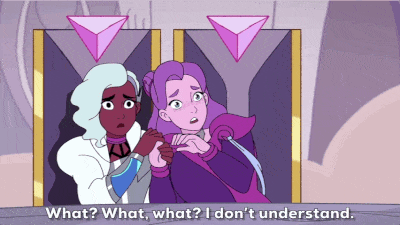
In the Crimson Waste, Glimmer responds to the growling bar patrons surrounding them by suggesting that maybe these aren’t the kind of people they should be asking for help, but Adora persists. She jumps up on the bar and makes a speech trying to get directions (which is socially inappropriate for the context as well as dangerous), somehow missing all the scowls from the patrons as well as Bow and Glimmer’s wild gesturing.
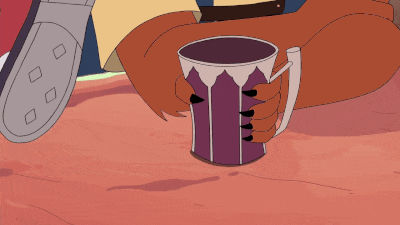
Panic over unfamiliar social situations
Adora’s anxiety about going to Princess Prom could be attributed to many things, not just a spectrum disorder. Her obvious anxiety, for one, though to be fair there’s a high comorbidity between the two disorders. In any case, it seems the unfamiliarity of the situation is a sticking point for Adora in particular, while Bow and Glimmer are nothing but excited for their first ball.
Adora’s anxiety seems to stem mostly from being overwhelmed by the prospect of entering a new social situation with a whole bunch of unfamiliar rules to remember. She’s still learning behavioral norms outside of the Horde, and this is a huge jump up in terms of difficulty for her fledgling social skills.
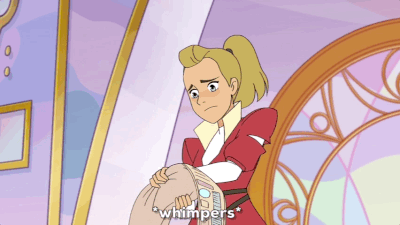
To cope with her stress she goes overboard trying to prepare by making a conspiracy board of sorts, flash cards, and an obstacle course. And at the ball itself, it seems like she’s even rehearsed how to behave.
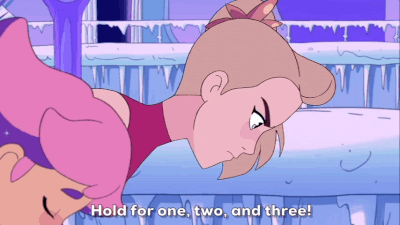
This probably isn’t only relatable to autistics, but it’s very relatable to us. Creating and rehearsing behavioral scripts is a common strategy to avoid embarrassing ourselves in public. Unfortunately, as we saw above, this works for about five seconds before Adora botches the whole thing by commenting on Frosta’s age.
Extreme stress over details
In general, Adora is a very anxious, perfectionistic person who hyperfixates on details, a very autistic trait. As mentioned above, this is wonderfully illustrated by her overpreparation for Princess Prom. She’s broken down the overwhelming list of rules in the invite into categories to make it more manageable, gone into detail categorizing people’s relationships to each other, and learned trivia about the guests in order to feel more prepared. Yet, somehow she missed the important fact that the hostess is only eleven years old.
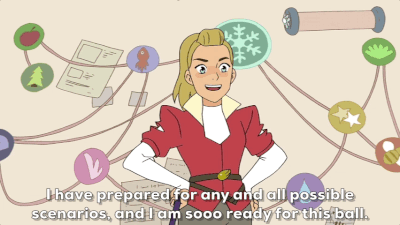
Unfortunately this hangup doen’t only affect her, but also her friends and allies. The overarching theme in “Roll With It” is how debilitating Adora’s anxiety and perfectionism can be. Her eye for detail and ability to see flaws in plans is actually very valuable, but she gets so hung up on every possible thing that could go wrong that she can’t accept imperfect solutions with calculated risks.
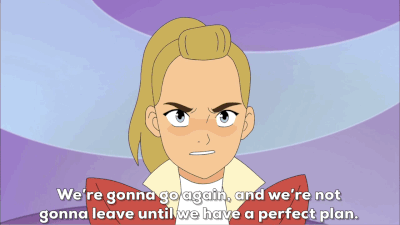
Her propensity to be overwhelmed by too much information (like with the Princess Prom invite) shows up here too. Adora grows more and more frustrated and overwhelmed as more princesses join the planning session, adding more variables to deal with and more people to manage. She begins lashing out and shooting down every possible solution that doesn’t satisfy her need for perfection immediately. Her behavior looks like it may be headed for a meltdown until it culminates in an epic rant revealing all her anxiety and how it ties into her insecurities about her own imperfection.
Thankfully her friends are able to reassure her that she has support and doesn’t have to be perfect, but it’s an ongoing battle, one we already saw her struggle with in “Flowers for She-Ra” and “The Battle of Bright Moon”. It’s a strong tenet of Adora’s personality that is proving difficult to shake.
What she misses about the Horde
The recently published Rebel Princess Guide contains a list by Adora of things she misses about the Horde, and this list screams neurodivergent. I’ll go through it point by point, since there’s a lot to unpack here.
THINGS I MISS ABOUT THE HORDE
1. I miss the rigid schedule. It never changed, and I always knew what to expect.
Ritualistic behavior and an insistence on sameness are often seen in individuals with ASD. In fact, it’s a major symptom. Many of us have diifficulty adjusting to changing schedules, changes in diet, or even minor changes in our environment (such as placement of objects, boy do I have stories there). We need warning when things are going to change, and even if we know it’s coming it’s still a struggle to adjust.
2. I miss the constant sound of machines and whirring. In Bright Moon, there’s always music playing, or people laughing, and birds singing. It’s nice but it makes it hard to focus!
Autistic brains process sensory information differently from neurotypicals, that’s basically our disorder at its core. Over or under reactions to sensory input are common and in fact considered a major symptom, and this entry of Adora’s specifically refers to difficulties with sensory filtering. We have a hard time filtering out information that’s irrelevant to our current task, which makes us easily distractable.
3. Believe it or not, I miss my hard cot in the barracks. My bed in the castle is way too soft!
This ties into both the insistence on sameness and sensory issues.
4. Catra… sometimes.
This isn’t autistic, it’s just gay.
Speaking of which...
She’s gay
Adora's relationship with Catra has always been queer-coded, but any doubts about her sexuality were dispelled in season 3 by the way she fawns over Huntara like a baby gay over her gym teacher. Her obvious queerness might seem unrelated to the topic of autism, but those of us within the community can attest there’s probably just as many queer people among us as there are cishets. It’s so notable that there has been quite a bit of scientific research confirming people with ASD are more likely to be LGBT and gender atypical and exploring the cause of this link.
(This needs no proving at this point, but enjoy these gifs anyway...)
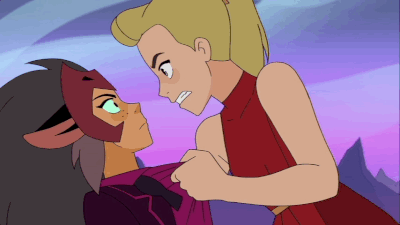
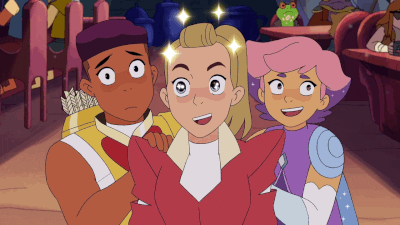
In conclusion
Overall, there’s a lot of hints and circumstantial evidence suggesting Adora could have ASD. Was this the creators’ intent? Hard to say. Adora is the protagonist and one of the most developed characters, so she’s definitely not a cardboard cutout or checklist for ASD symptoms (compare that to Entrapta, a secondary character whose behaviors can often easily be attributed to autism). It’s totally possible the creators just characterized her as naive and awkward and obsessive without realizing the implications of that cluster of traits together.
Regardless of authorial intent, it’s perfectly valid to look at Adora and see representation of the ASD community. The groundwork is there. And if someone else looks and doesn’t see it, or sees something else causing this behavior, that is also fair. No one is forcing anyone to accept this headcanon (or at least they shouldn’t be), but in return please don’t disparage it. Even if she is not autistic Adora is definitely autistic-coded, and we could use some more heros with the disorder, given how we’re mostly relegated to being villains and anti-heroes (not that there’s anything wrong with us filling those roles sometimes, but a little variety would be nice).
Adora is often referred to as a dumbass, but she’s actually quite intelligent, just sometimes slow to understand how she should act and how people feel. Still, she tries her hardest, just as she does with everything else. Adora is heroic and compassionate, even if she sometimes struggles to understand others. When autistic-coded characters are so commonly portrayed as cold and unforgiving, Adora is a sorely needed exception.
1K notes
·
View notes
Text
youtube
(From a post on my FB page, because I really feel like this is a must-see clip! Although people say that this has “gone viral,” with the number of autistic people in the world, I’m really upset that this doesn’t have FAR more views, as it could be a fantastic gateway for potential allies to seek out more information. This Ted Talk even helped to put words to things that I have felt, but have had trouble in putting into more concise language.)
In a search to see what came up in searches about autism on YouTube, I was pleasantly surprised to come across this absolutely BRILLIANT Ted Talk, which is done by #actuallyautistic (and #queer, they/them pronouns) autism researcher Jac den Houting. Jac has a PhD in Autism, and makes many important points that aren’t often heard by those outside the #autistic community, despite the fact that they’re things that we desperately need neurotypical allies to understand (such as the idea of #doubleempathy).
I’d advise anyone - including autistics, neurotypical allies, and (especially) those that think of autism in the “autism is a tragedy” paradigm - to give this a watch (and to give this page a follow), with an open mind...you won’t regret it.
There is a constant barrage of negative messaging about autism, and it sadly tends to come from organizations that portray themselves as autism “advocacy” groups - groups that are made up of boards/leadership that don’t include any autistic members, but that make a TON of money, based on fear-mongering. The clip itself describes just how (disturbingly) little funding is actually going towards actively helping those on the spectrum. I’ll have a further post - or likely several - about why such groups are problematic in regard to society’s understanding of autism.
And no, these posts won’t be about demonizing parents. One of the main problems in moving forward with reform is that we need #autismparents and #actualautistics to UNITE, as opposed to being on opposite sides. If you’re an #autismmom or #autismdad, I WANT you on this page. I understand if you might feel hesitant, based on differences that you may see and/or perceive between your child and myself, or den Houting. The problem arises when people believe - or are made to believe - that these differences mean that autistic adults and the parents of those with autism must somehow inherently be on opposing sides. I’ve developed a (now seemingly obvious) idea as to why this occurs, which I’ll discuss in another post...but I believe that, in a world where things are often seen as needing to be the “fault” of one side or the other, neither side is actually to blame, here.
We need to engage in openminded discourse, as opposed to assuming that we must, for some reason, be enemies. This is a difficult task, being that social media’s whole culture, even according to experts in the field, is PURPOSELY divisive in nature. Polarization, extremism, and outrage is what “sells.” (Try watching “The Social Dilemma” on Netflix for more information about this.) I’m trying for unity, anyway. There’s too much that I’ve learned and seen, positive and negative, both from years of teaching autistic children, and while trying to FIGHT major problems in the system.
Autism looks and feels different in ALL autistics, but certainly we can all agree on one basic idea: that ALL autistics, adults and children alike, should be able to learn and build communication skills via methods that are humane and individualized; that we need better medical and social supports; and that we deserve increased respect/understanding from society, as a whole.
As an autistic adult with many years of teaching autistic students under my belt - and knowledge of the MANY shortcomings/shortcuts that are a part of the system - this is in fact the whole goal of this page (and, in fact, my life). We can - and should - do better for all autistics...especially when it comes to teaching our younger generations. We still have time to make changes that can provide them with earlier diagnoses, better education, AND more comprehensive support - and keep them from suffering from some of the mistakes of the past.
Give the page a follow! I’d definitely like to share my thoughts and experiences, and eventually some teaching ideas/methods that I used...but I want to hear from others, as well. Most importantly, though, DO check out the video. It might give you a different/enhanced perspective; in particular, it helped me to find the words for a few things that I’ve felt, but wasn’t quite sure how to articulate (I won’t give any spoilers, though...watch it!)
.
.
.
.
#autism #neurodiversity #autismadvocate #autismawareness #autismacceptance #asd #autisticadults #autisticchildren #onthespectrum #jacdenhouting
#autism#autism advocacy#autism spectrum#autistic#actually autistic#autistic adults#autistic community#neurodiversity#neurodivergent#autism mom#autism dad#autism diagnosis#double empathy#gender queer#on the spectrum#autism parenting#asd#autism acceptance#autistic pride#autism awareness#Youtube#actual autistics#ted talks#jac den houting#the unmasked autistic
11 notes
·
View notes
Note
pls do us a favour and drop the evidence of how brian was autistic
strap yourselves in folks because the original report I had for this is several hundred words long. also none of this is from a psychological perspective and I’m in no position to give an official diagnosis HOWEVER I am an autistic person myself and you do tend to notice these things if you look closely
ok firstly I believe that brian’s interest in transport was his first special interest. firstly I’m gonna quote my m*m on the matter ‘nobody [neurotypical] is interested in transport!’ which is in reference to me excitedly telling her about my idea for the article (it was for school and I did indeed submit this for a mark. the teacher found it very interesting though). then again she’s not a reliable source and that quote was probably in comparison to my dad and I both being fascinated by railways (thanks dad). ok so back to the fact brian was so fascinated, in laura jackson’s biography on him it discusses how he would love going to see steam locomotives as a young child, which true, lots of young children are fascinated with them, however he kept that fascination into adulthood because wasn’t there that snippet that he collected things to do with transport? also he used to construct mock crashes using real fire idk if that’s anything to do with it though
brian would also listen to blues records over and over again to figure out how to play them which is very dedicated of him, but also he named two of his kids after julian adderly. that’s dedication. he went as far to get metal piping from a scrapyard in order to play slide guitar, and when the stones were supporting bo diddley brian dropped all of bo’s material from the stones’ set out of sheer respect. admittedly I haven’t got as much info on his interest in the blues because I focused too much on his interest in transport because overlapping interests will drag you places, but I can see his interest in it??? someone else with more knowledge might be able to piece it together better than I can
also on the music thing and teaching himself slide guitar, something that I did learn from another autistic person (it was someone on youtube I think it was aaron ansuini?) and the topic of autistic people finding it easy to figure out how things work came up and the example he used was instruments. now according to laura jackson’s biography (yes I reference this a lot it’s the only solely-brian-focused stones bio I have) brian learnt piano very well, and taught himself saxophone after learning clarinet alongside mastering all reed instruments by EAR, but also taught himself slide from records, and we all know how many damn instruments brian played
this is a weird one and I did learn this from when I was getting my orthotics fitted at the end of last year so it’s not in the original document thankfully BUT. autistic people tend to walk on their toes, which leaves differences in our feet because it’s simply a different gait, your feet will wear differently. one of the things brought up in that appointment was the fact that the toes will curl for grip and the like. front of the foot will flatten - if you make a fist and look at your knuckles it will make a curve, now imagine if that was flattened and apply it to your feet. now of course naturally I remembered seeing a picture of brian without shoes a few days earlier and I can’t believe I’m saying this but I willingly stared at his feet to try and figure out if he also happened to have those... trademarks. I couldn’t really make out much but using that Iconic™ photo of him shoving his feet into the camera, I did notice his toes do curl, especially the two outermost toes. I can’t quite make out whether the front of his feet were flattened or not but it does seem like they might’ve been from the other picture I stared at for way too long, but looking at the more iconic photo I can’t tell either way due to there appearing to be a curve however there should be more shadows if that were the case. ok weird bit over I hate that I stared at his feet for so long
because I talked about feet here’s a section on animals. there’s the story I think you told me about the time brian tried stealing kittens when he thought they were being mistreated, the time brian befriended a goat when another member of the stones (unknown which one it was but anyone else picturing keef?) decided to lift its back legs up and pretend it was a lawnmower due to the fact that someone said that a goat would keep the lawn down and I think brian took that literally (we’ll come back to that). and how could we forget the time the white goat was led out and brian literally said ‘me’ (harry told me that one and I have NO way of verifying it but holy shit). now this is something I have noticed and that’s autistic people do tend to get along better with animals. this is either hyperempathy, or lack of empathy because I’m on the ‘I have zero empathy’ end of the scales and I had more animal friends as a kid than human ones. I’m not an expert but at least in my case it was not needing social skills in order to communicate?
so we all know brian was like. a square peg in a round hole right. the fact that he used to be a golden child who’d help serve out the morning tea buns (probably just so he could get the leftover crumbs at the bottom of the tray but we’ve all been there) to like. one of the most rebellious figures in swinging london. that entire narrative is something very neurodivergent, especially with autistic people who tend to get frustrated with the world because they’re very obviously different (pat andrews did say that when she met him in 1960 he was considered a loner). a lot of other ‘square pegs in round holes’ such as nikola tesla, einstein and so on have been thought to be on the spectrum. brian also used to refuse to put on his uniform and as I’m typing this I’m literally wondering if that’s a sensory thing because school uniforms are uncomfortable to the ordinary person, they can be utter hell if you’ve got sensory issues. speaking of brian’s school career he also didn’t see the point in certain things such as ‘games’ as he said in an interview, and that’s something a few autistic people do find, that they can’t find the point in certain activities they don’t find interesting or enjoyable.
also have I mentioned that I think brian might’ve stimmed by putting his fingers in his mouth? there’s several pictures of him, and I mean several, where he’s got his fingers or his thumb in his mouth or near his mouth in a situation where stimming would happen, aka basically anywhere because stimming is just something we do, y’know???
ok so I hope this was interesting??? I have been sitting on this information for over a year. hopefully my teacher doesn’t find this but if she does, hi. ignore my blog please.
anyway I’ve compiled this from laura jackson’s biography, several personal anecdotes, information i have seen on various sites both about brian and on autism, various autistic youtubers, and other documentaries and thingies about autism because I have watched a few out of curiosity! hope this was interesting
35 notes
·
View notes